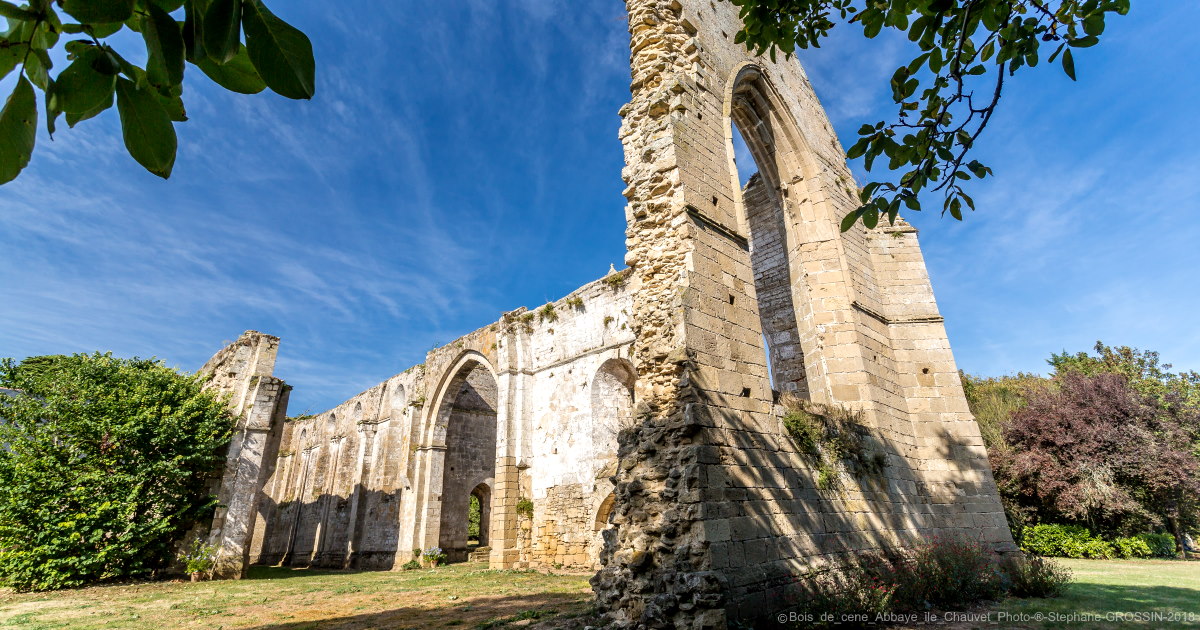
Abbeys in the Vendée
Stunning in their dimensions, tranquil locations, state of ruin or architectural beauty, the abbeys offer intrigue with a significant glimpse into French history and geography.
Build an Itinerary – It would be difficult to see all of the abbeys in one day, but some could be looped together. Fortunately there is enough to find nearby them to venture out, perhaps with a picnic basket or beach toys, and definitely a camera, creating memorable days in the Vendée.
In more good news, three of the abbeys are included in the Pass Vendée.
Pass Vendée – the Vendée Pass is a cultural pass for €21 that allows you to visit 9 cultural and 2 nature reserves, as many times as you like for a year. It is available online (currently the site link is not secure, be aware of this) or in each of these locations where you can also use it: Historial de la Vendée, Logis de la Chabotterie, Château de Tiffauges, Abbaye de Nieul-sur-l'Autise, Abbaye de Maillezais, Haras de la Vendée, Prieuré de Grammont, La Cité des Oiseaux, La Réserve de Nalliers Mouzeuil-St-Martin
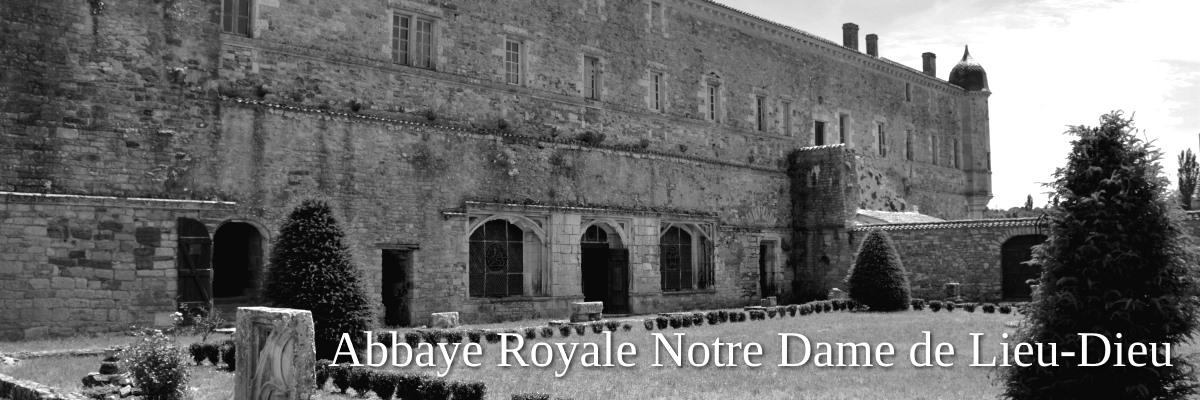
The abbey of Jard sur Mer -
XIIth Century
Founded in 1197 by Richard the Lionheart, whose parents were King Henry of England and Eleanor of Aquitaine, the Abbey Notre Dame de Lieu-Dieu was home to an order of the Premonstratensian monks.
The abbey is lovely. In its heyday, it was enormous but like the rest of the Vendée, the beautiful monastery suffered greatly during the 100-years war and the wars of religion. It was looted, burnt, rebuilt and looted and burnt again throughout the centuries. Since 2012, the abbey is privately owned and being restored.
For the past three centuries, the area has been popular among geologists. Located at the cusp of the Armorican Massif, the Aquitanian Basin and the Atlantic Ocean, the local sulfide-bearing ore was mined for silver towards the end of the 18th century.
Fossils can be found, still, and several specimens are displayed at the abbey. To find fossils, simply find a rock and break it open... you might find a sea creature that's been hidden for millennia, just waiting for your adventurous self to discover it!
Open – 15th July to 31st August 2019. Guided visits from 10h00 - 12h00 and from 14h00 - 18h30
Tip – near the beach of Plage de la Mine where a WWII bunker can also be discovered
Address – Abbaye de Lieu Dieu, 85520 Jard-sur-Mer
GPS coordinates – 46 ° 25 '29 "North, 1 ° 36' 32" West
Nearby abbey (36km): Abbaye Royale in Saint Michel en l'Herm
Nearby Sightseeing – Maison de Georges Clemenceau
Blvd Georges Clemenceau, 85520 St-Vincent-sur-Jard
GPS coordinates – 46° 24′ 23″ N, 1° 32′ 51″ O
Images – by inthevendee.com
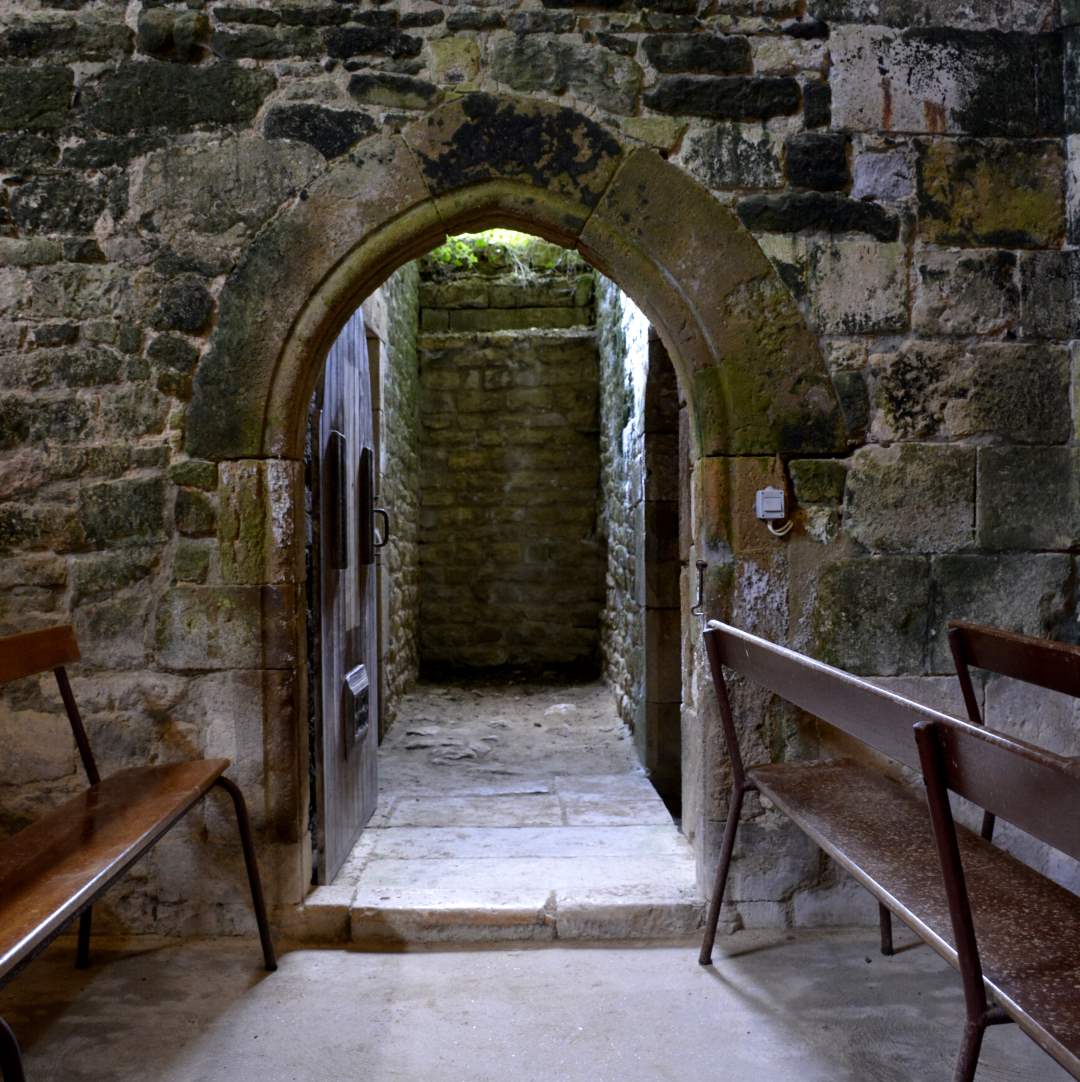
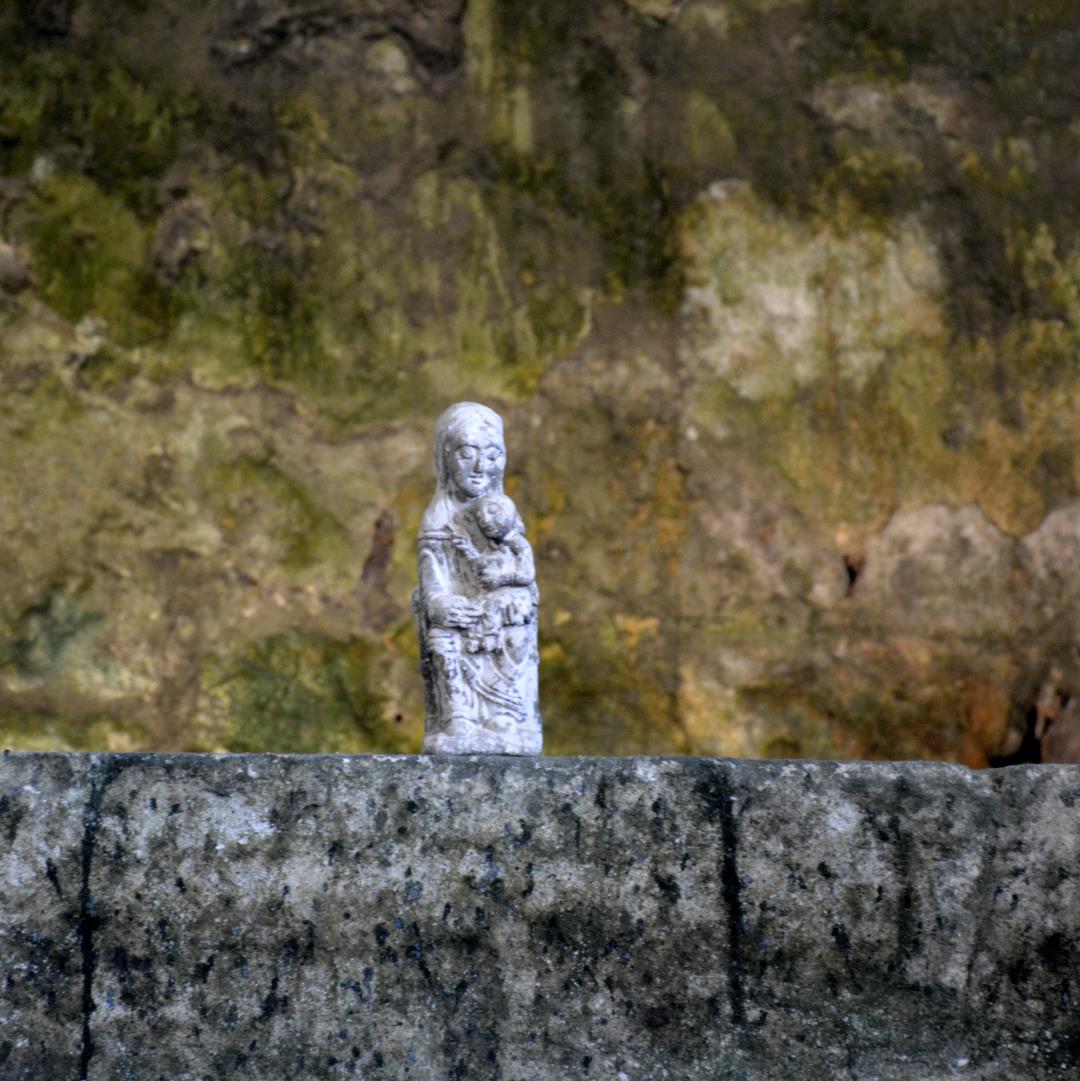
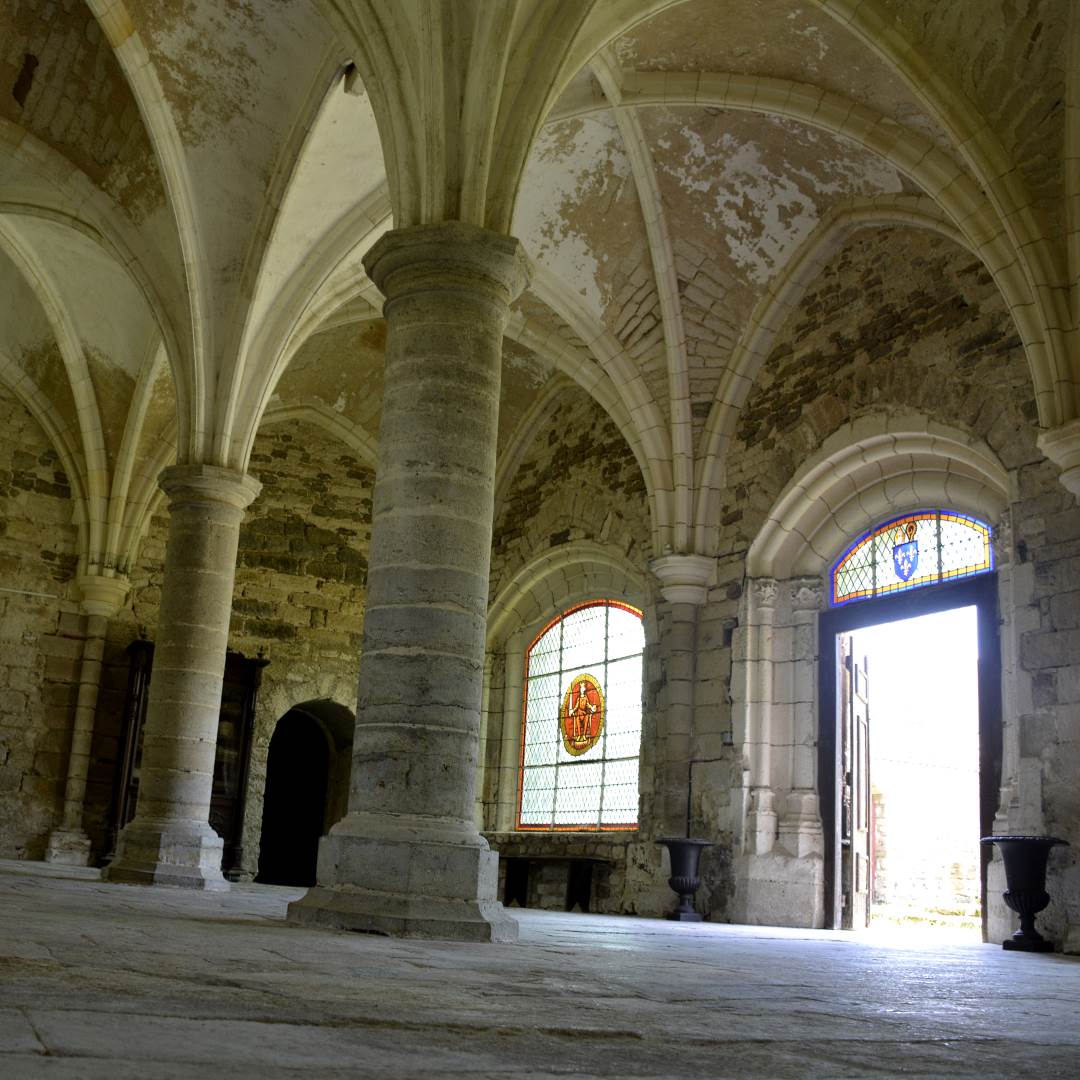
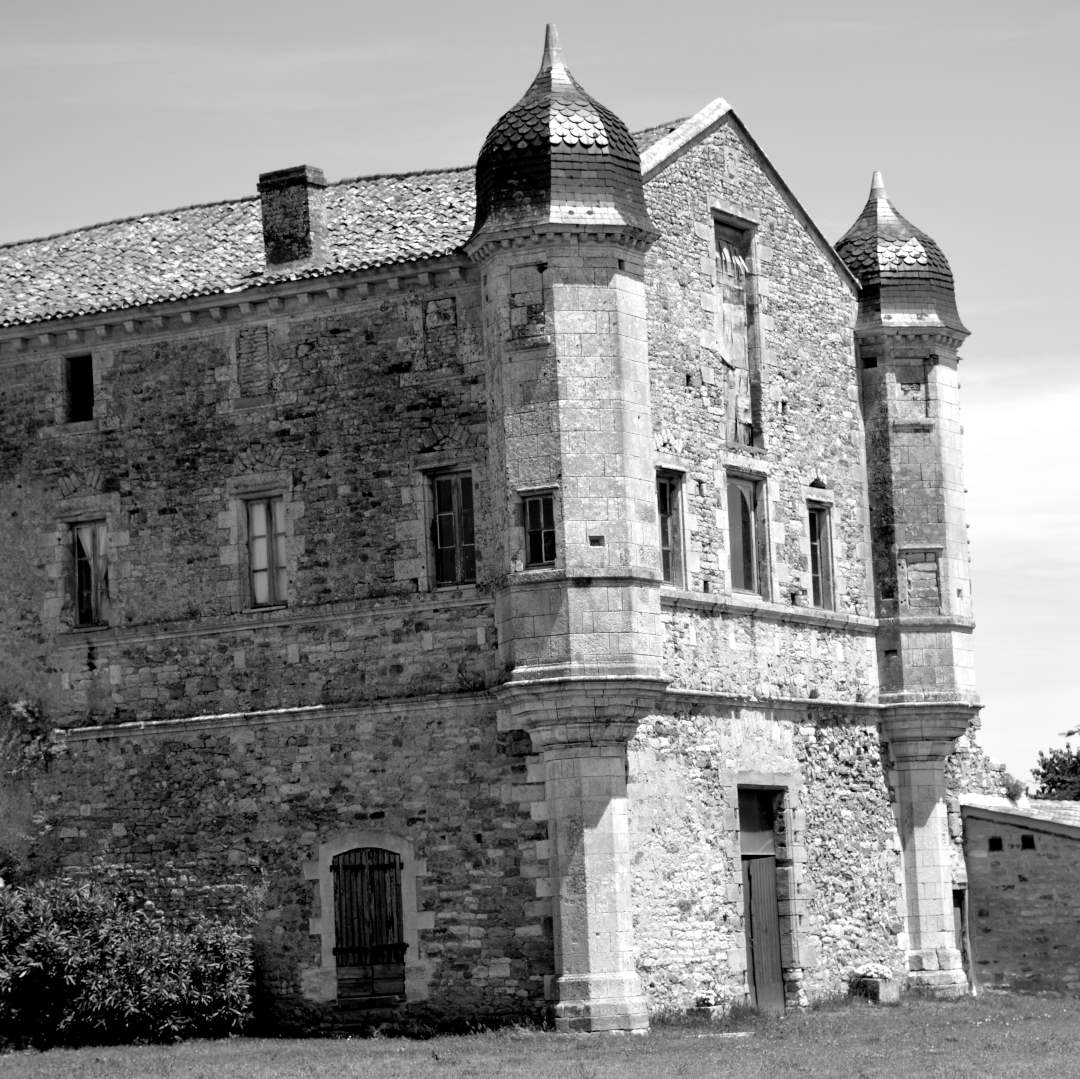
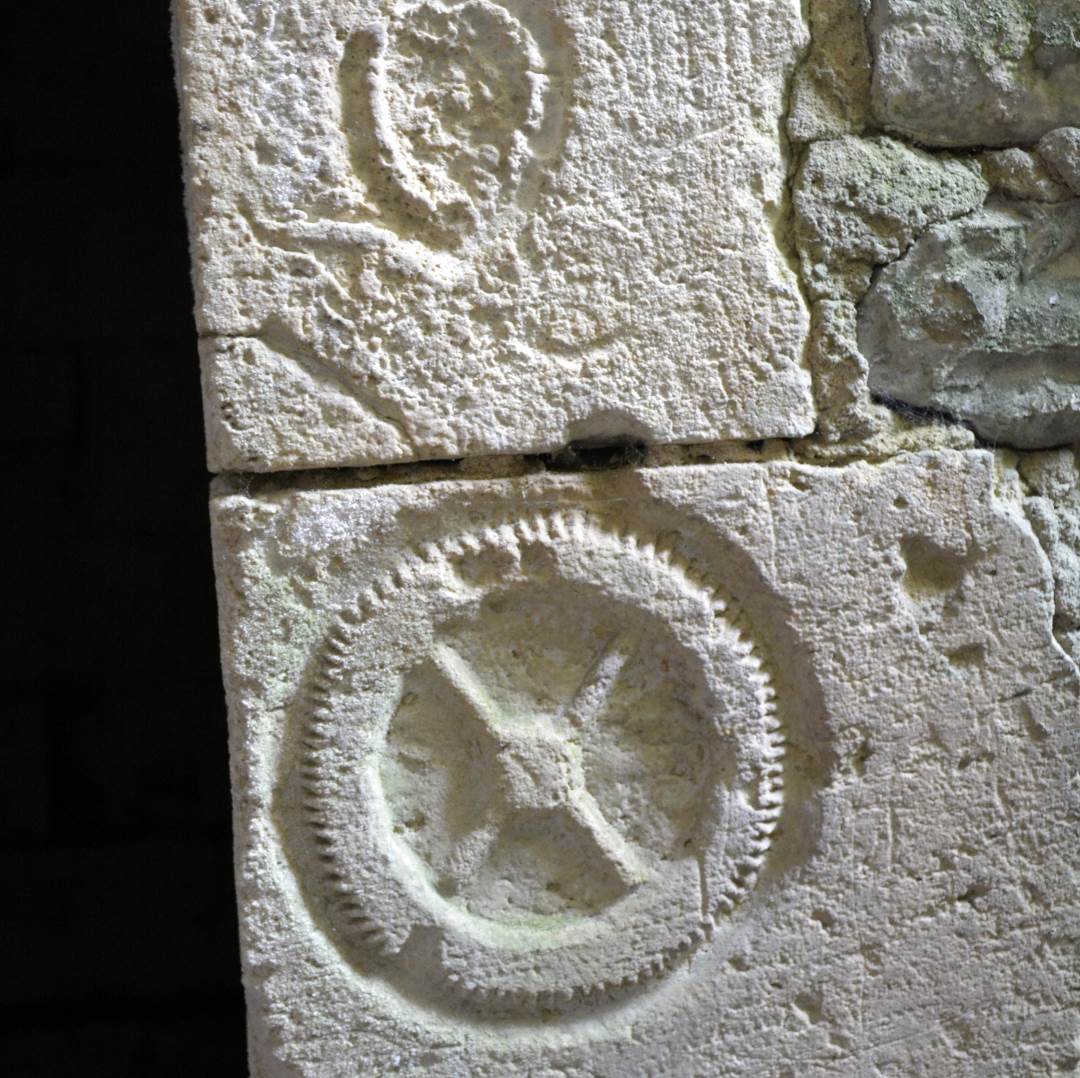
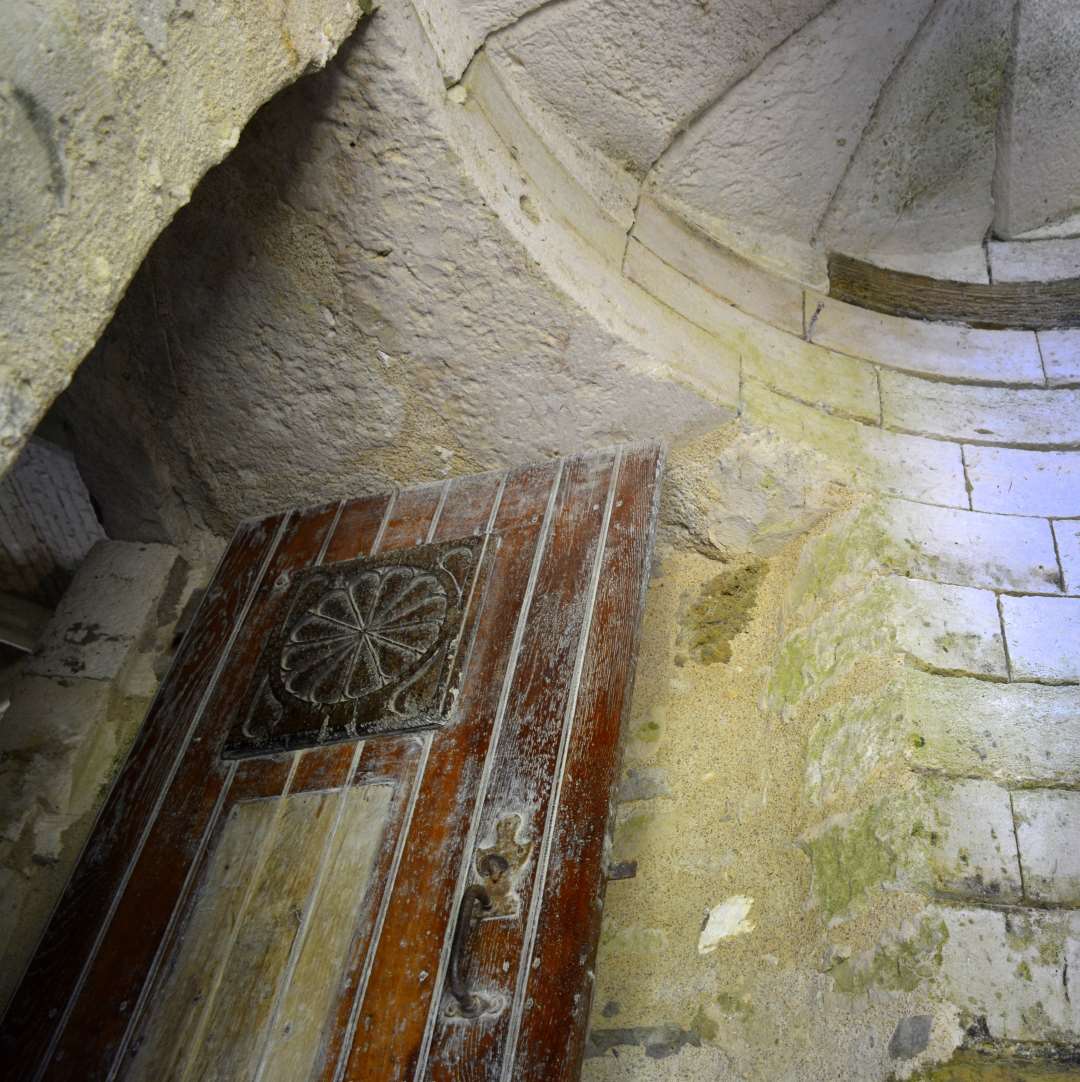
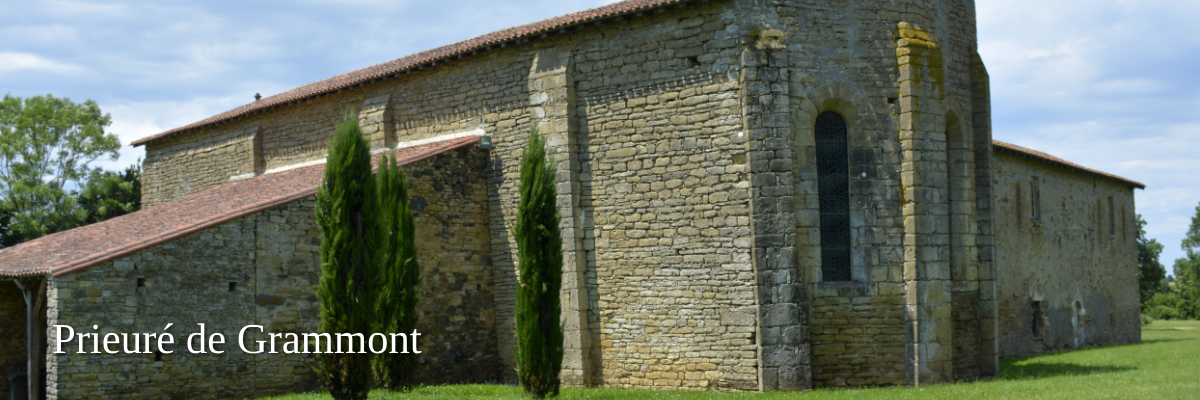
Prieuré de Grammont - XIIth Century
Located in the midst of farm fields, the small abbey Le Prieuré de Grammont is as tranquil as it is charming. It's not difficult to imagine monastic life as it once was. Richard Coeur de Lion (Richard de Lionheart) ordered the Order of Grammont and this structure built at the end of the 12th century.
It is one of the best preserved Order of Grammont monasteries in France. The chapel and courtyard have amazing acoustics, so do check the Prieuré summer concerts schedule and buy tickets timely.
Catch one of the summer concerts in the abbey. (They sell out quickly!)
Open – 1st June to mid-September.
Tip – Pass Vendée
Address – 85110 Saint-Prouant
GPS coordinates – 46.7486° N, 0.9857° W
Nearby abbey (16km): Abbaye de Grainetière
Nearby Sightseeing – Sigournais (donjon), Bazoges-en-Pareds (donjon), Mouilleron-en-Pareds (Maison Musée Clémenceau, Musée Clemenceau-de Latre, La Colline des Moulins)
Related Blog Post – with beautiful images of nocturnal Gregorian chanting at the abbey.
Images – by inthevendee.com
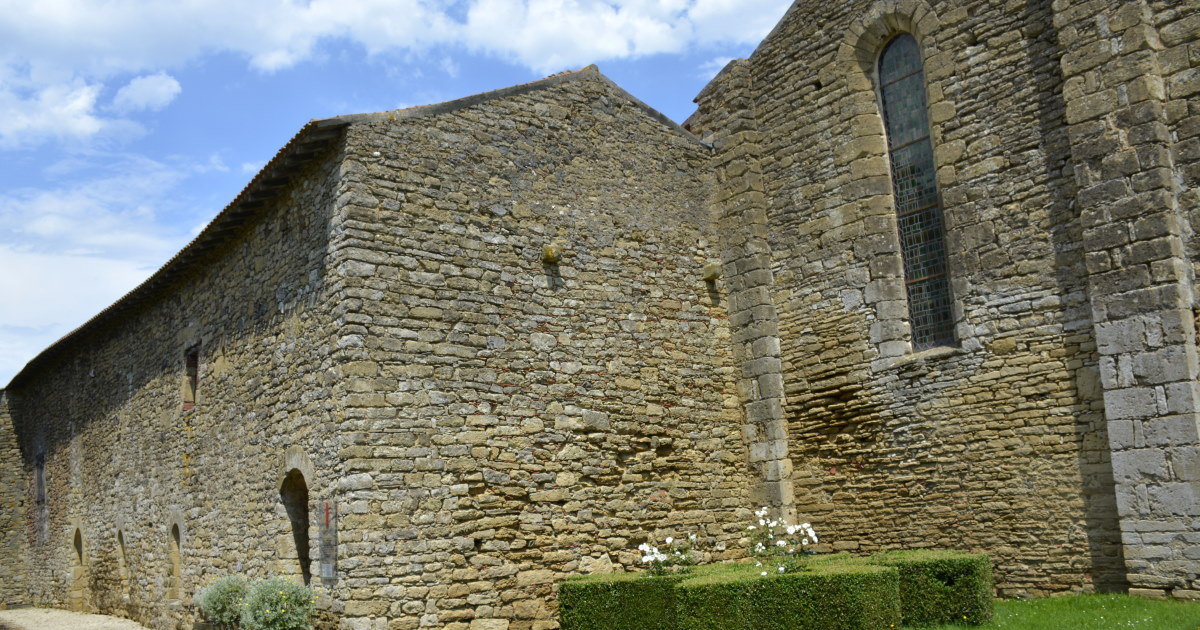
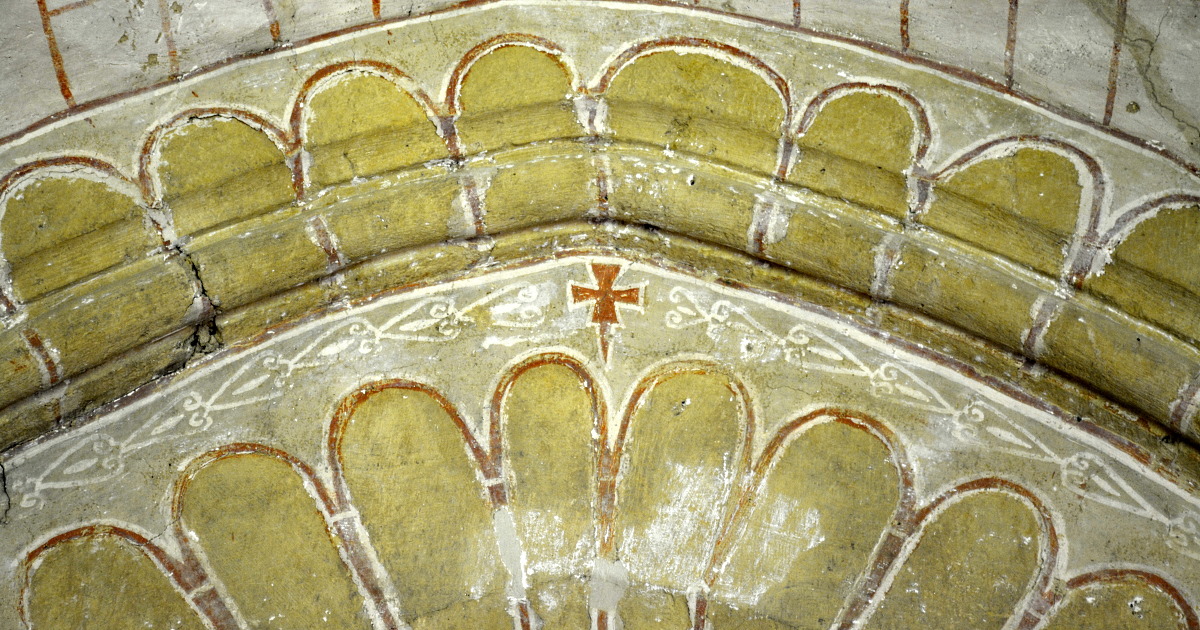
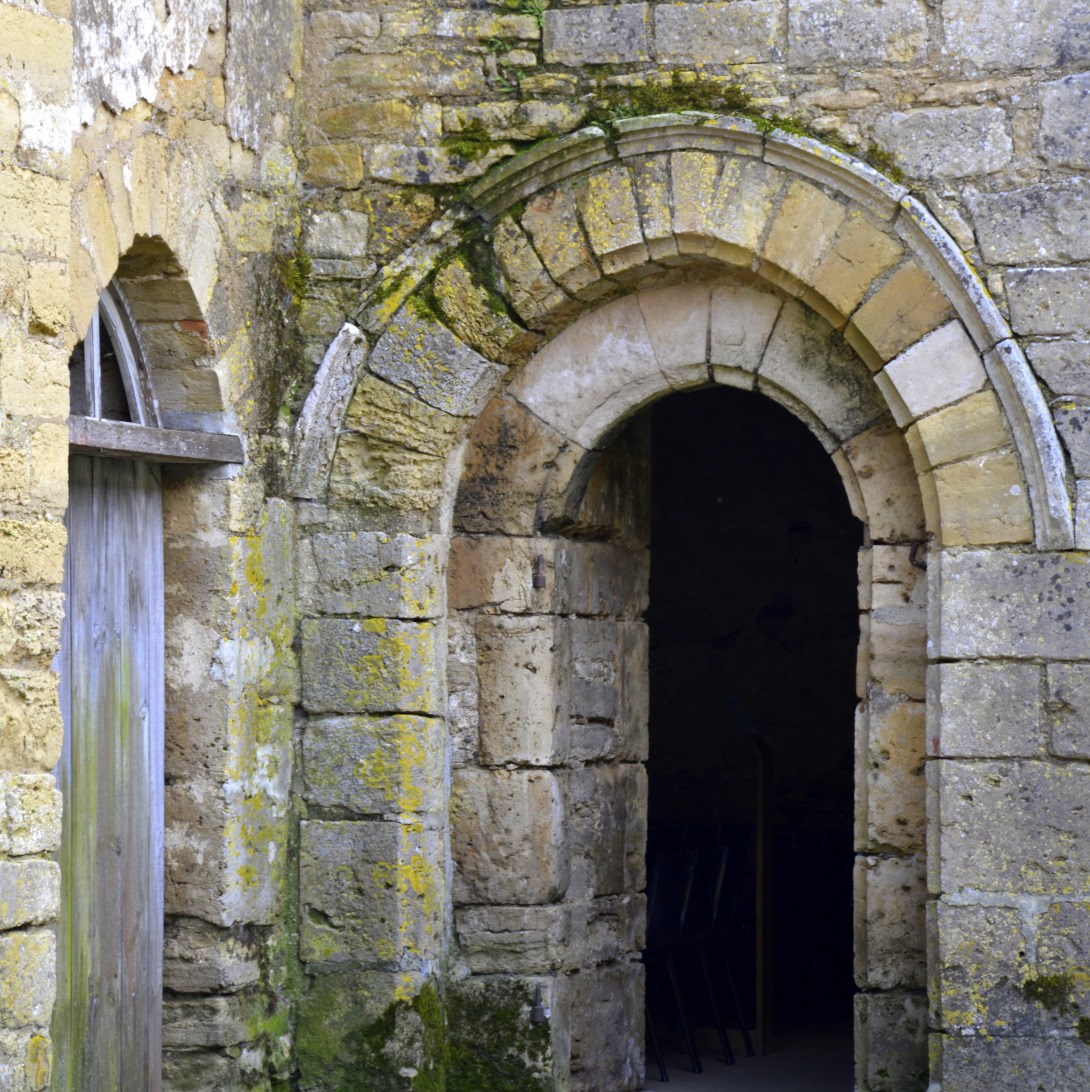
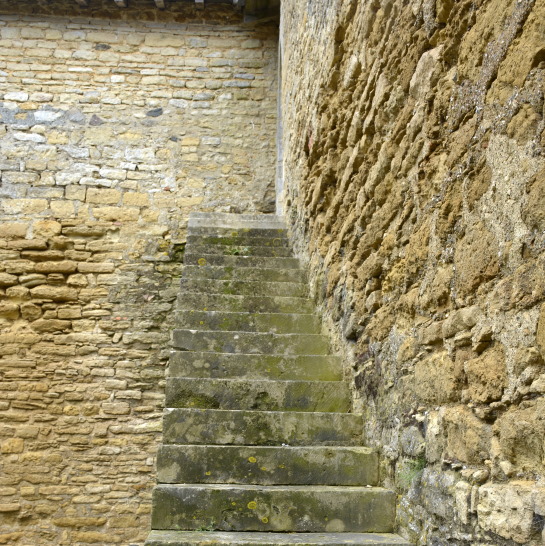
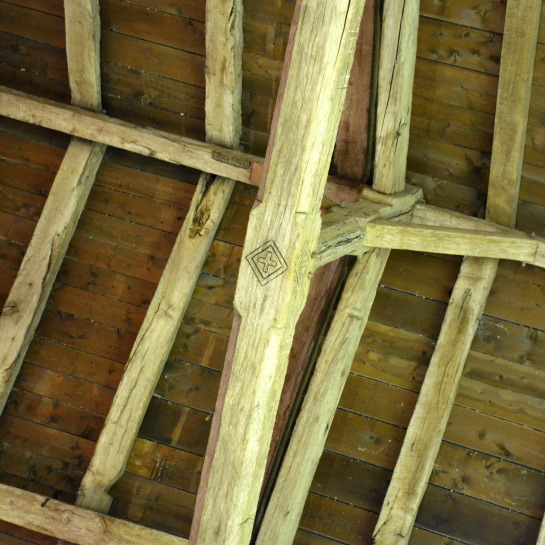
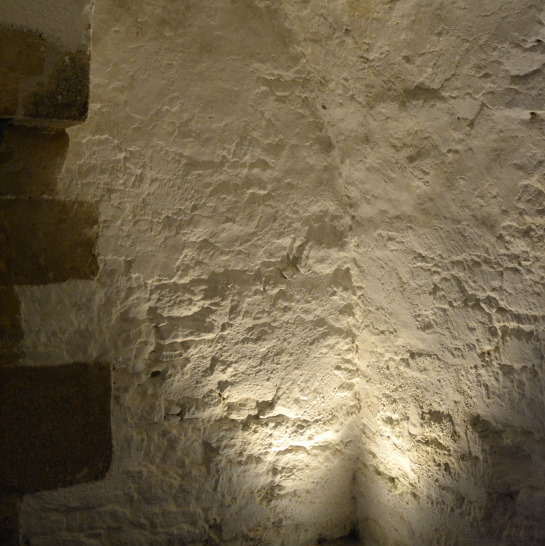
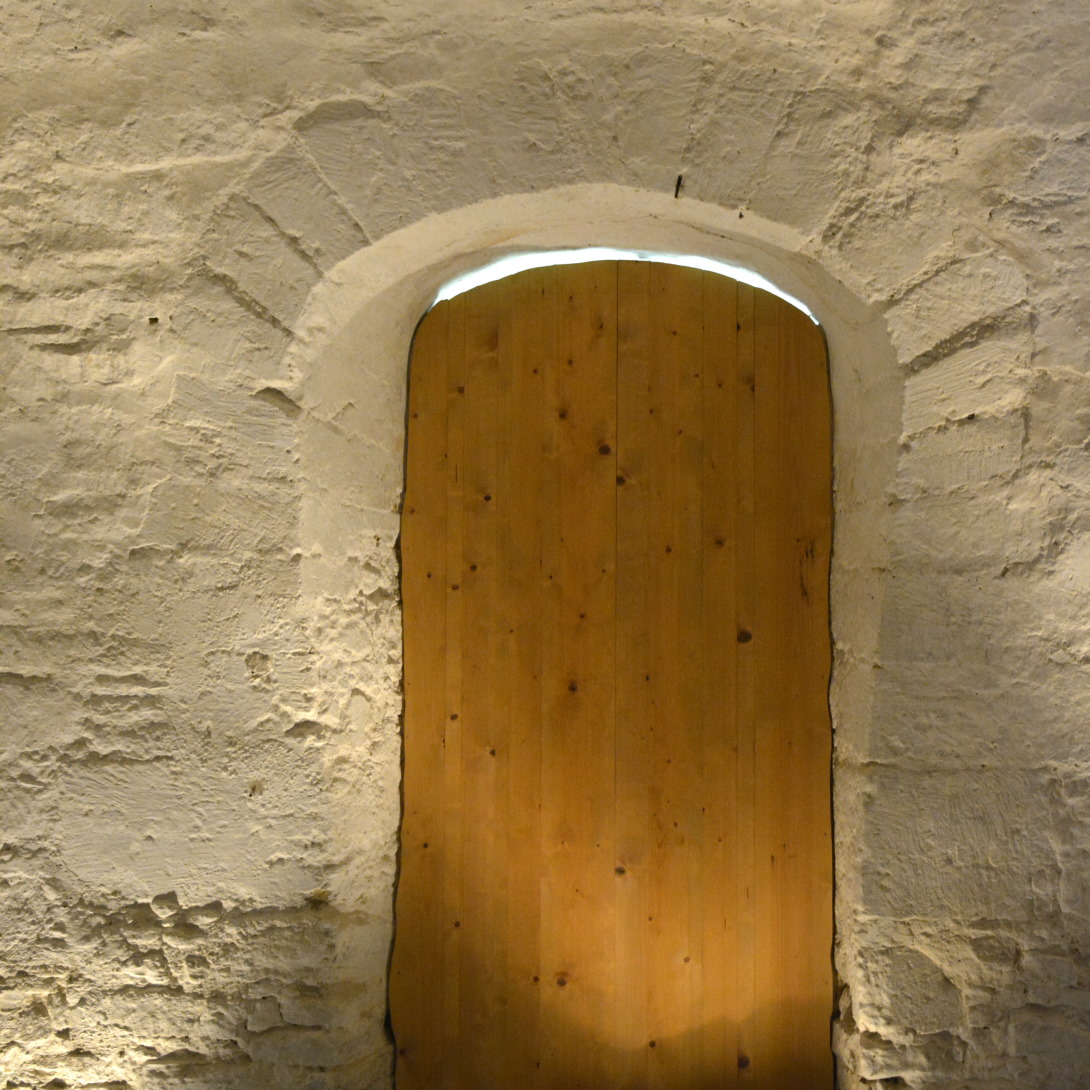
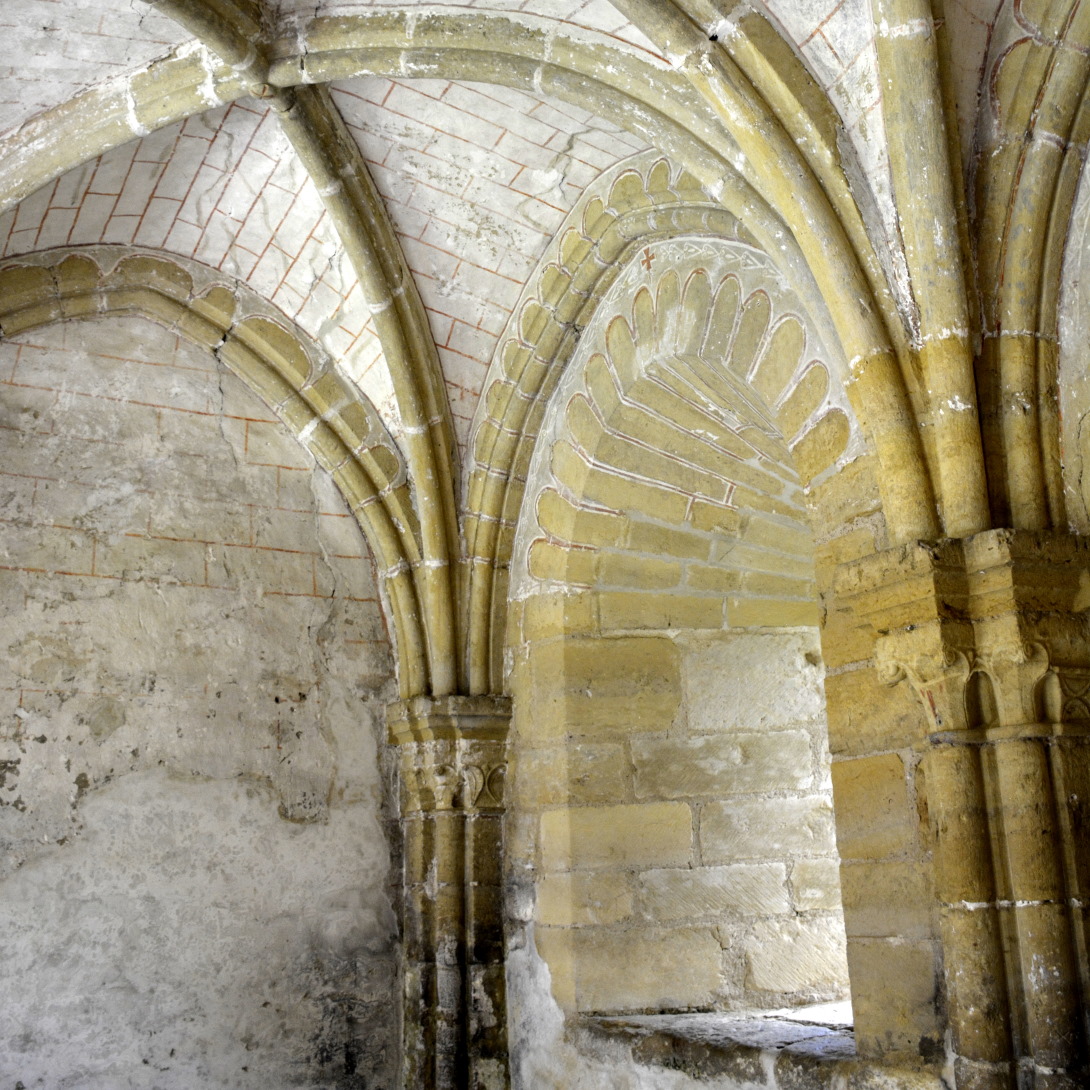
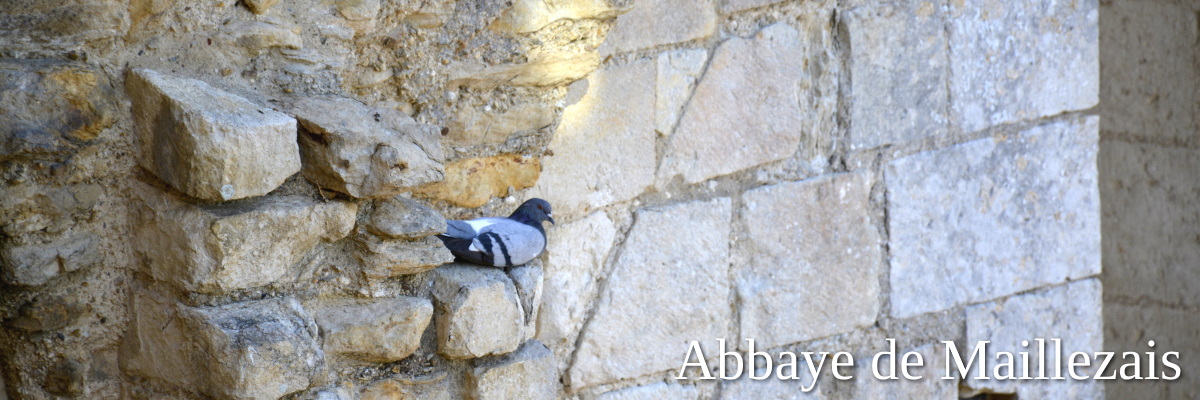
Abbaye de Maillezais - Xth Century
It takes big words to describe this abbey: majestic, mysterious, glorious... come to mind, each evoking the cultural heritage site perfectly. Constructed on the ruins of an old chapel ca. 976, there are accounts of an established abbey anno 989. The abbey was deemed the area's bishop's seat until 1648, but its monastic function continued until it was abandoned in 1666.
The cathedral was destroyed during the Reformation and the Religious Wars. For a number of years, the abbey changed hands to Protestants, but was returned to Catholics in 1618/19. Check schedule for cultural events.
Events year-round, including a fantastic and unique Christmas market each year which draws huge crowds.
Open – Closed from 12 November to 28 February. Schedule.
Tip – Pass Vendée
Address – 85420 Maillezais
GPS coordinates – 46.3727° N, 0.7457° W
Nearby abbey (10km) – Nieul-sur-l'Autise
Cycling route from Maillezais to Nieul. Info here
Nearby Sightseeing – boat tour of the Marais-Poitevin. Embarkation point by the entrance to the abbey grounds. It's not necessary to purchase an abbey ticket to hire a boat. Embarcadère de l'Abbaye
Images – by inthevendee.com
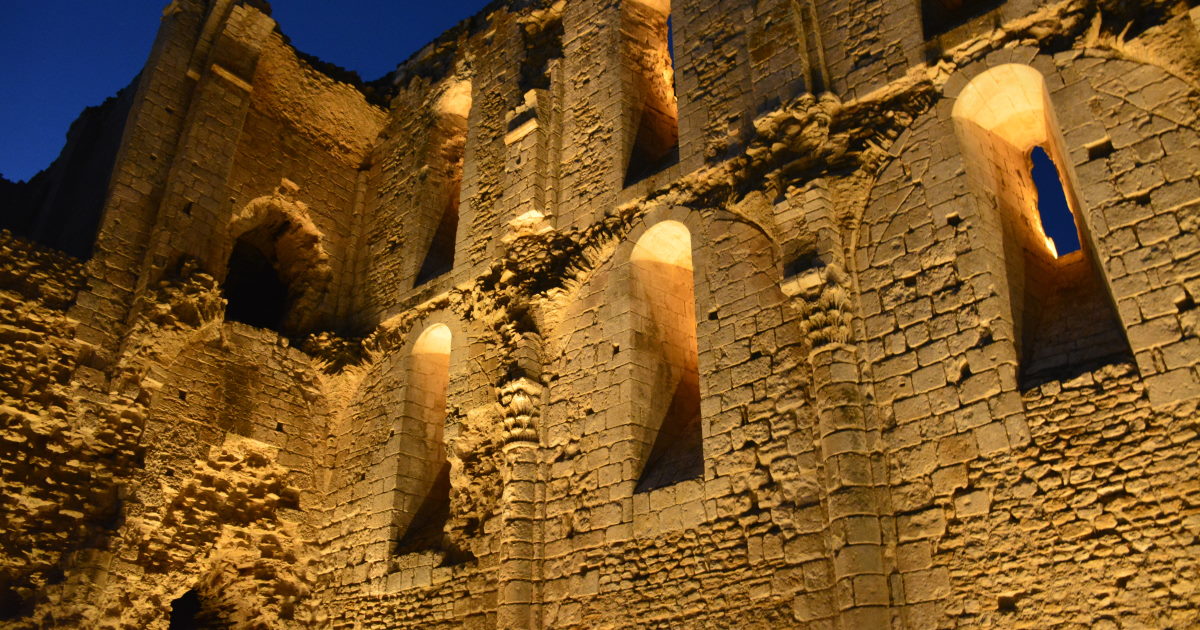
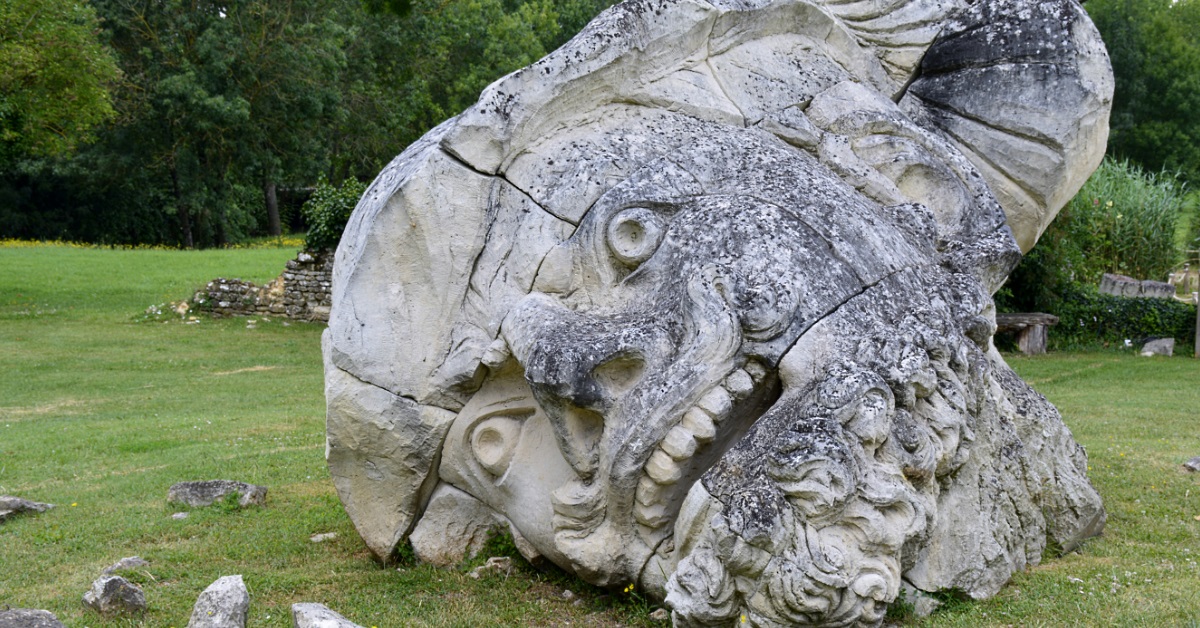
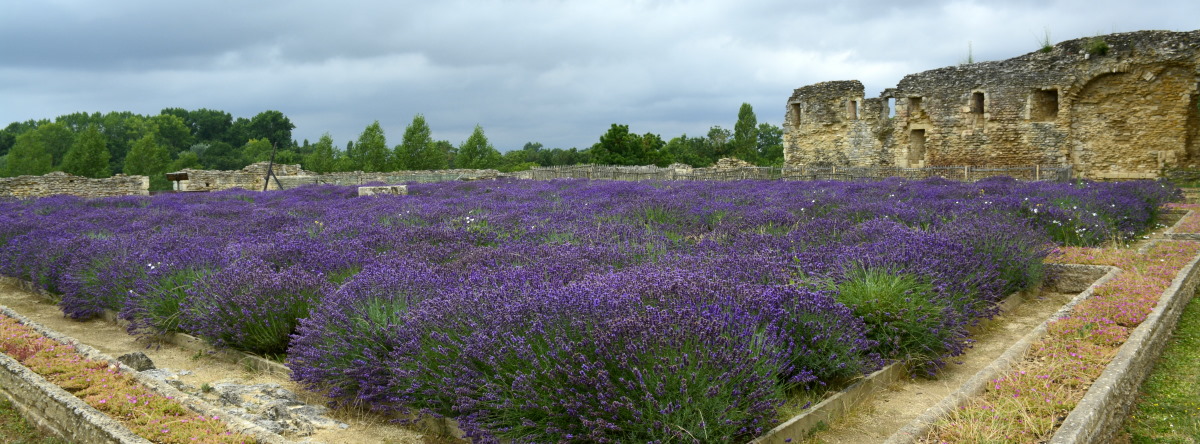
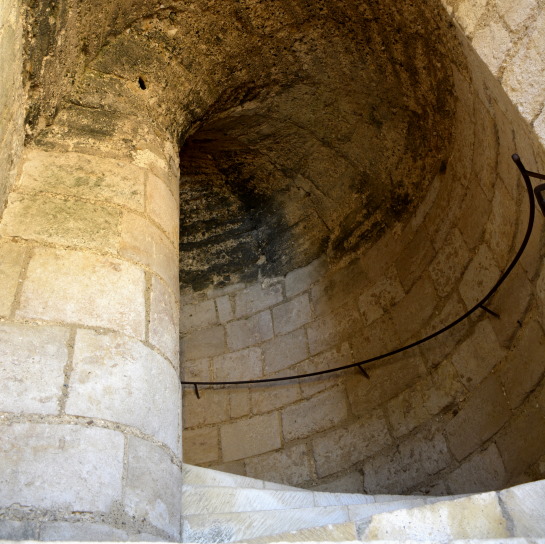
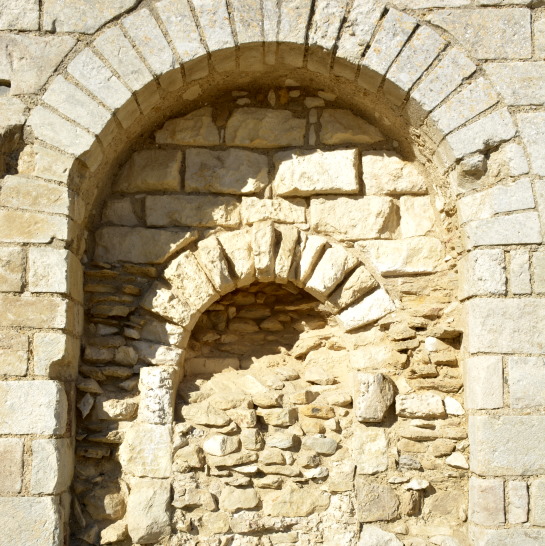
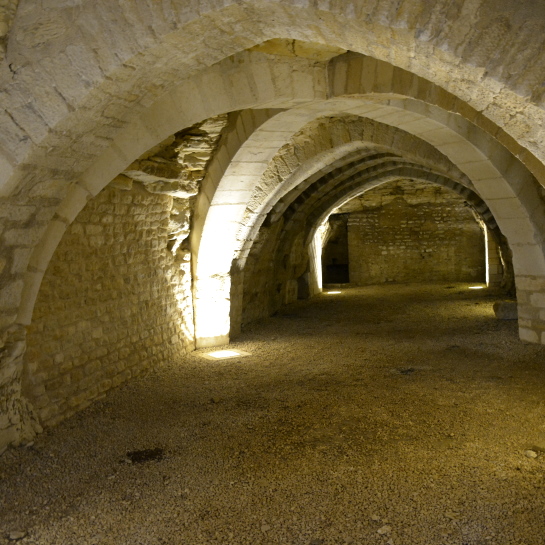
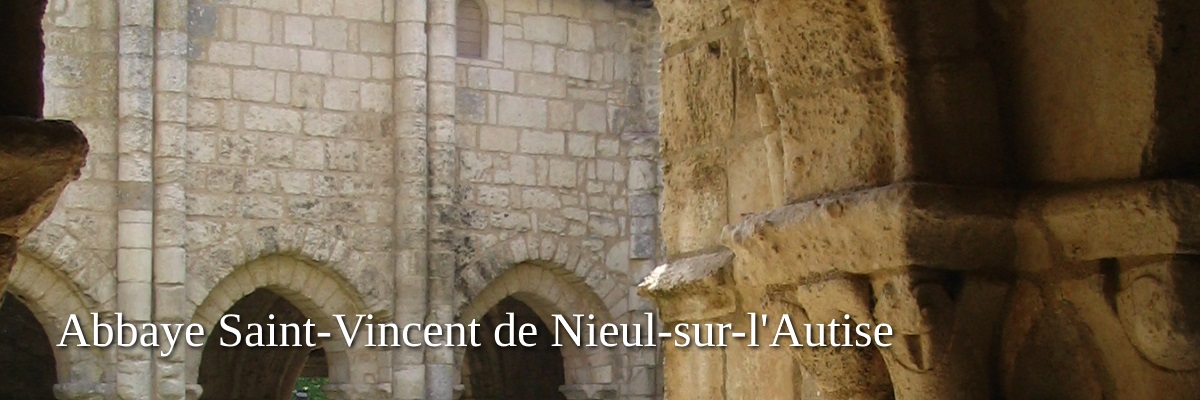
Nieul-sur-l'Autise -
XIth Century
In this picturesque village you will find an abbey that has dipped its feet into the 21st century with an interactive tour and exhibits that have the abbey come to medieval life.
Founded in 1068, it was declared a royal abbey in 1141 by King Louis VII, husband of Eleanor of Aquitaine. Except for the Romanesque cloister, it was largely destroyed in the Wars of Religion, and restored.
They've done a brilliant job showing the visitor how it once was, as unobtrusively as possible. While electronics and ramps steal from the imagination a little, this abbey is also a great research location for authors.
Open – Open all year. In July and August, guided tours daily Schedule
Tip – Pass Vendée
Address – 1 Allée du Cloître
85240 NIEUL-SUR-L'AUTISE
GPS coordinates – 46.4247° N, 0.6789° W
Nearby abbey (10km) – Abbaye de Maillezais
Nearby sightseeing – Chateau du Terre-Neuve (Fontenay-le-Comte), Vouvant (Petite Cité de Caractère)
Image credits – Julien GAZEAU Vendée expansion. Intro and walkway by Patrick Charpiat, Abbey by Aoudot25
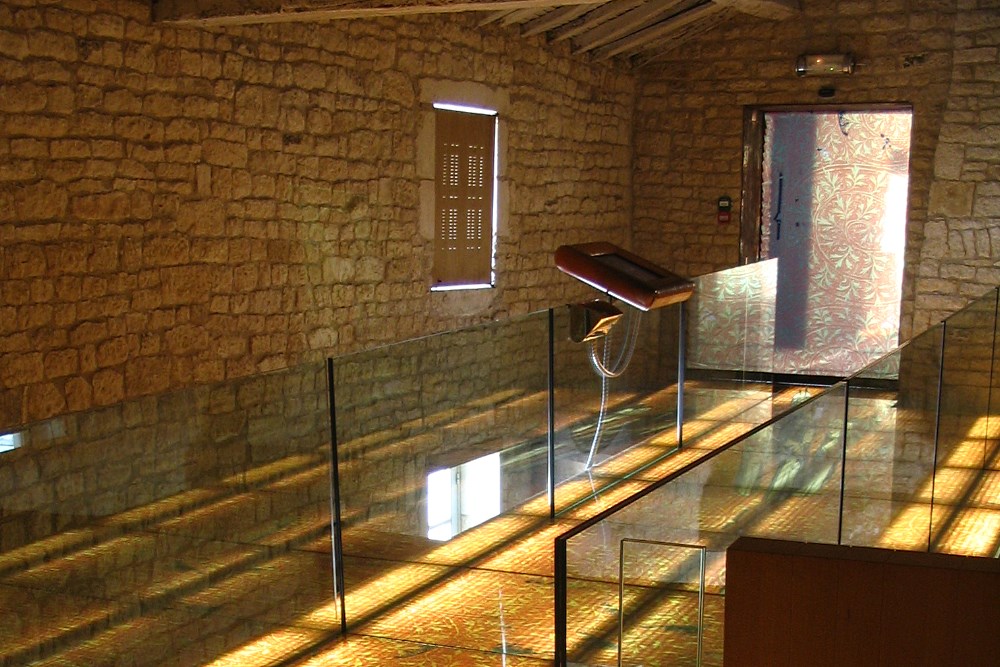
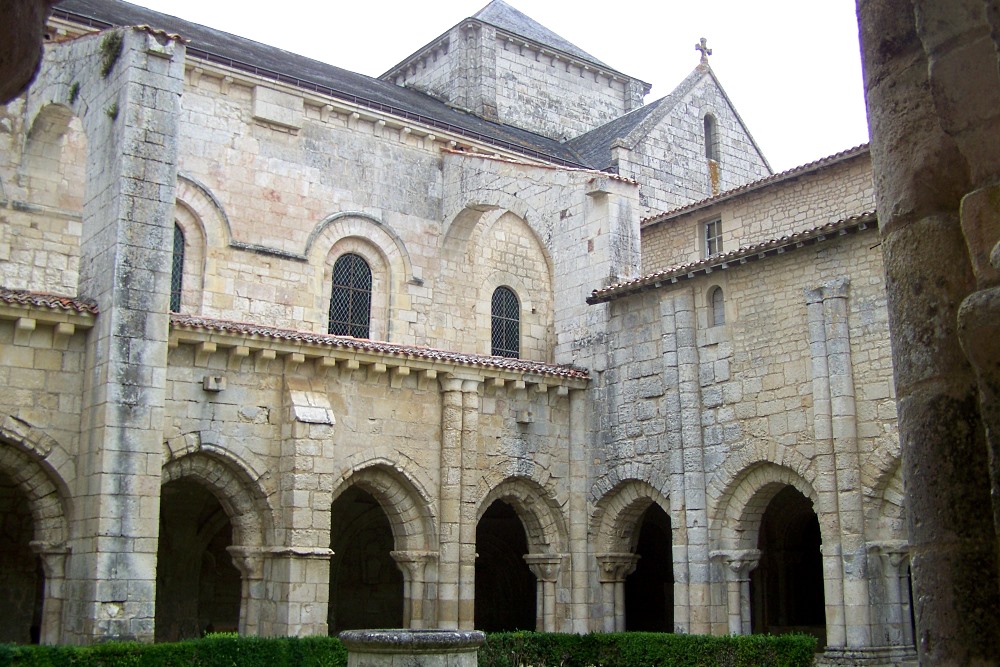
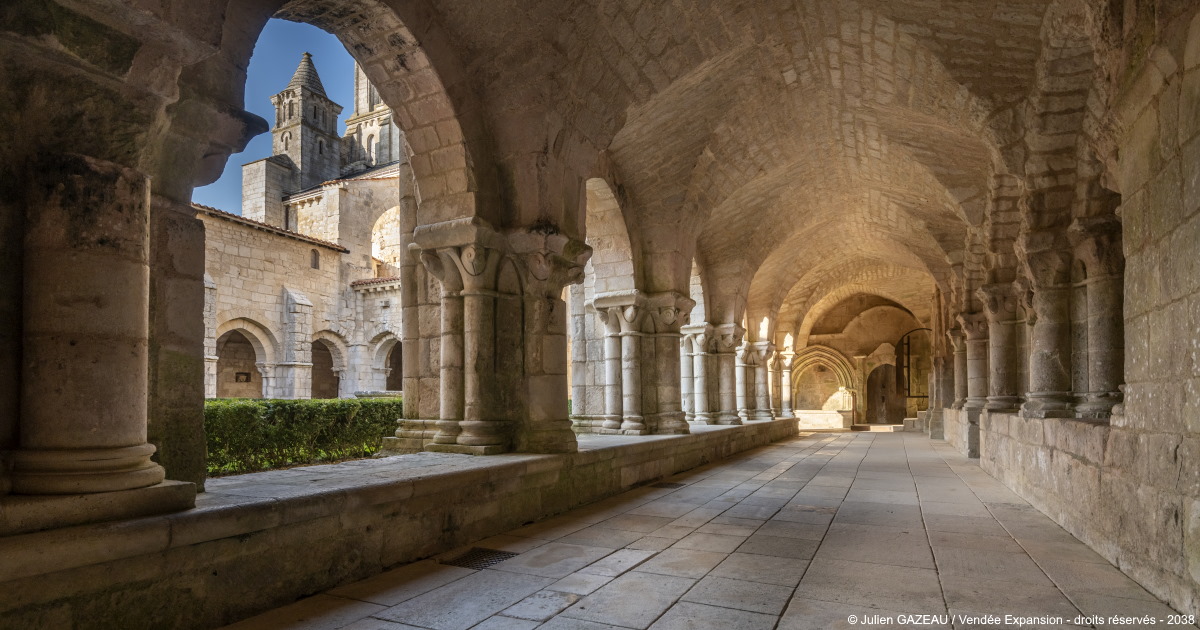
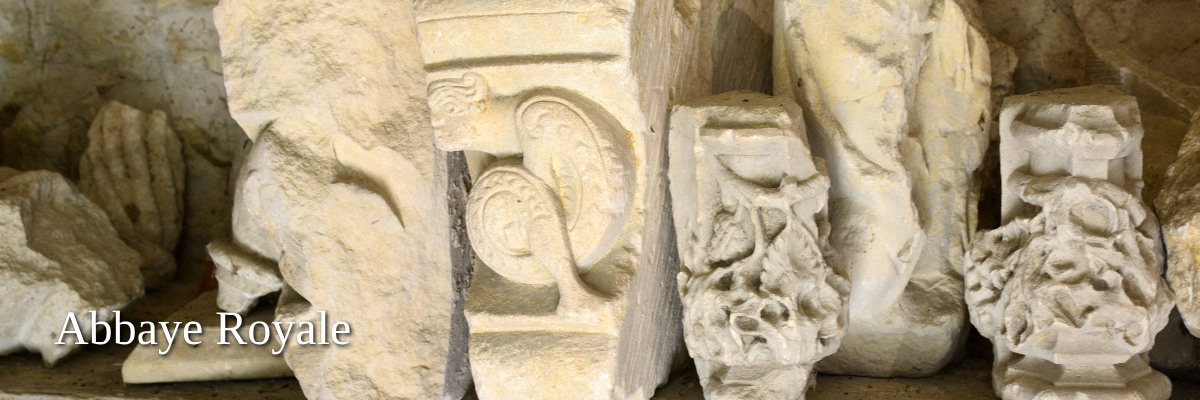
Abbaye Royale - VIIth Century
In the village of Saint-Michel-en-Herm is a hidden gem, founded in 682 by the monks of Noirmoutier. Many of the abbeys in this article are located on what used to be islands in the Gulf of Pictons. At that time they were considered infertile and worthless. Until the monks had the brilliant idea of gradually filling the bay through a method of dredging and natural sedimentation.
Thus new soil was built up so that the bay disappeared into what is today known as the Marais Poitevin. The old part with its scriptorium is therefore located 9m lower than the newer part. When the kings realized how fertile the soil had become, the abbeys were heavily taxed. This abbey was deemed 'Royal' in 1516. Since 1818, the abbey is privately owned, but nevertheless saw a German occupation in the Second World War. The monastery itself was active until the French Revolution.
Open – Guided tours in spring and summer Schedule
Tip – tickets Tourism Office near the abbey
Address – Place de l'Abbaye, 85580 Saint-Michel-en-l'Herm
GPS coordinates – 46.3530° N, 1.2502° W
Nearby abbey (10km) – Abbaye de Maillezais
Nearby sightseeing – la Trance-sur-Mer, delightful village by the sea with many restaurants, cafe's, and golden beaches
Images – by inthevendee.com
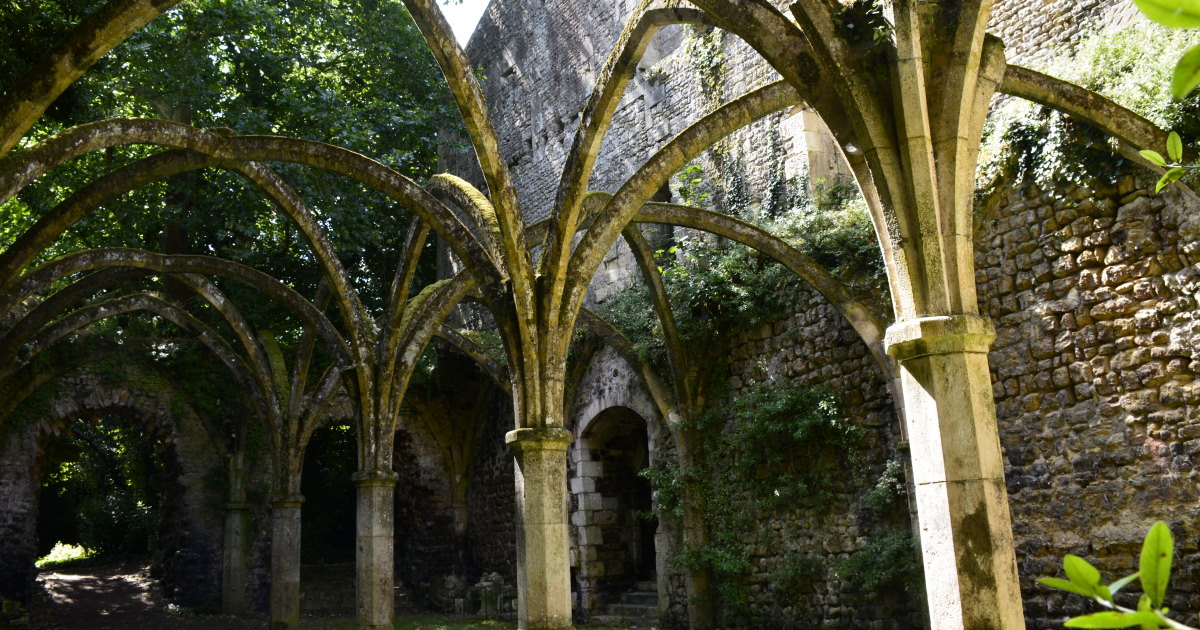
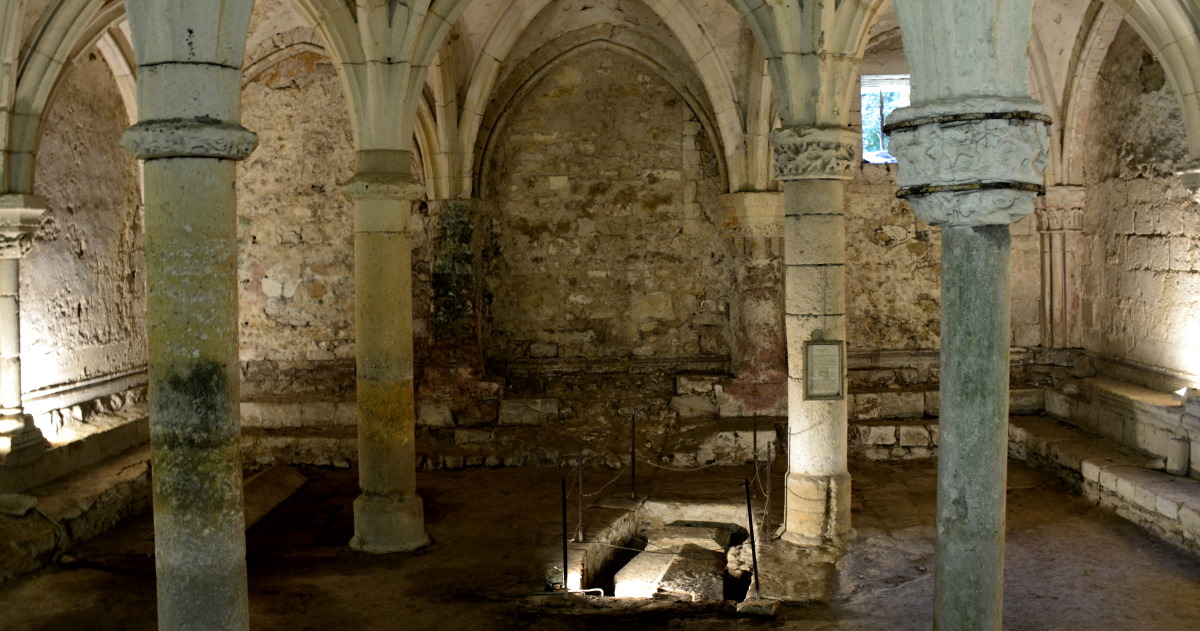
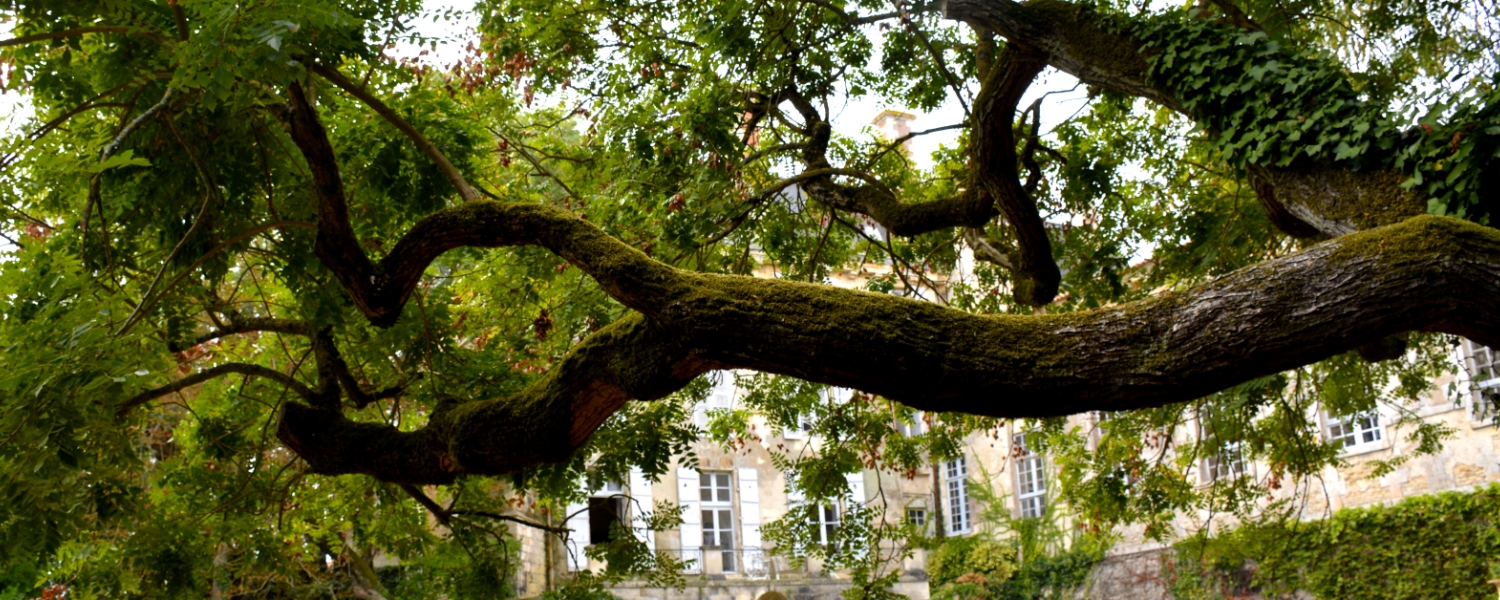
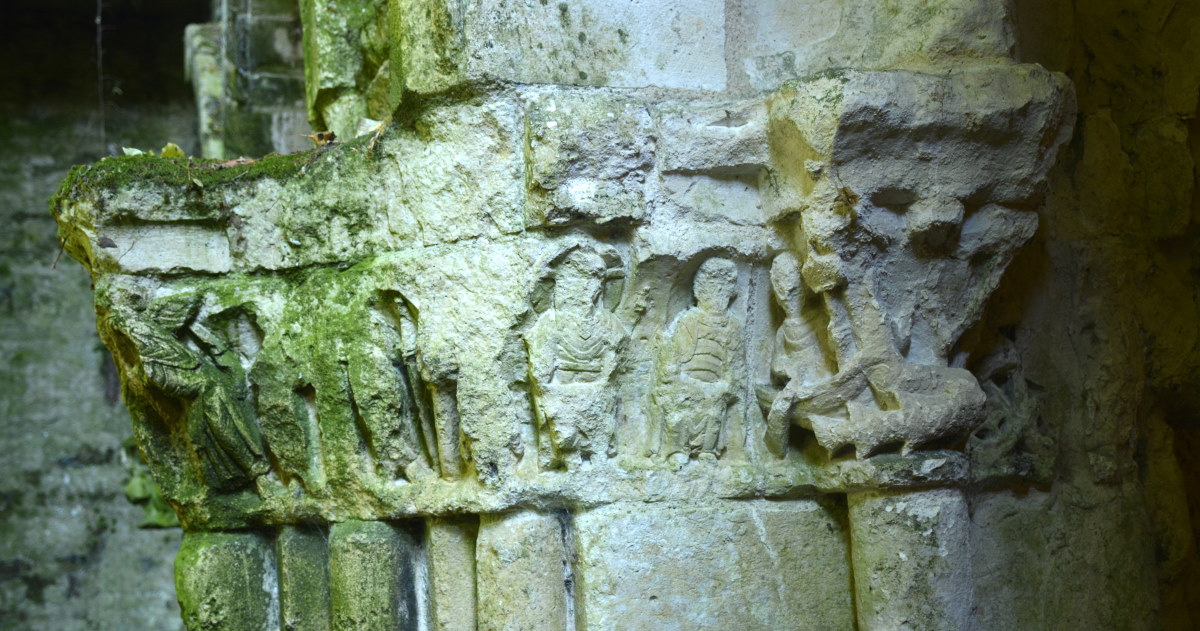
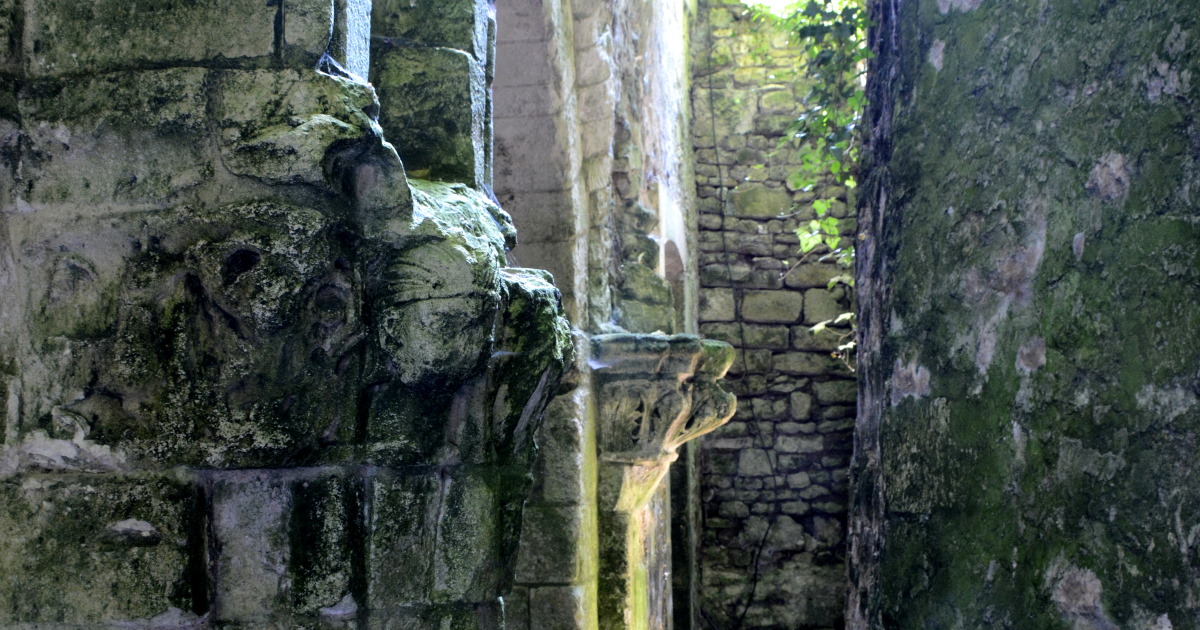
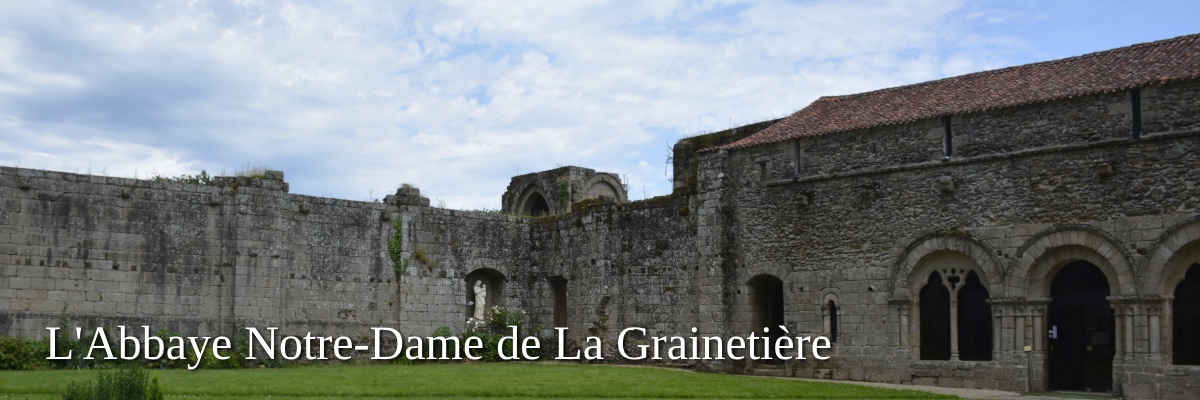
L'Abbaye Notre-Dame de La Grainetière - XIIth Century
Established in 1130 by Benedictine monks of the Abbey of Fontdouce in Saintonge, and recognized by Pope Lucius II anno 1145, the abbey was repeatedly burned and robbed by the English during the Hundred Years War or Religious Wars. In 1790 the abbey was sold as a stone quarry and largely demolished.
Bought in 1963, it was then partly restored. Since 1979 the abbey houses the only male monastic community in the Vendée.
Benedictine monks live here by testimony of evangelical poverty and perform manual labor. In particular, monks in good health share life with disabled monks.
Open – Open daily Website and schedule
Tip – this is a working monastery where silence is practiced. Be respectful.
Address – La Grange d'Ardelay, 85500 Les Herbiers
GPS coordinates – 46° 49′ 49.8″ N, 1° 03′ 34.56″ W
Nearby abbey (16km) – Le Prieuré de Grammont
Nearby sightseeing – Le Puy du Fou Cinéscénie (evenings), Château d'Ardelay, Le Mont des Alouettes, Château du Boistissandeau accommodates a home for people with disabilities and their elderly parents, unique in France. Chapel is open for visitors.
Images – by inthevendee.com
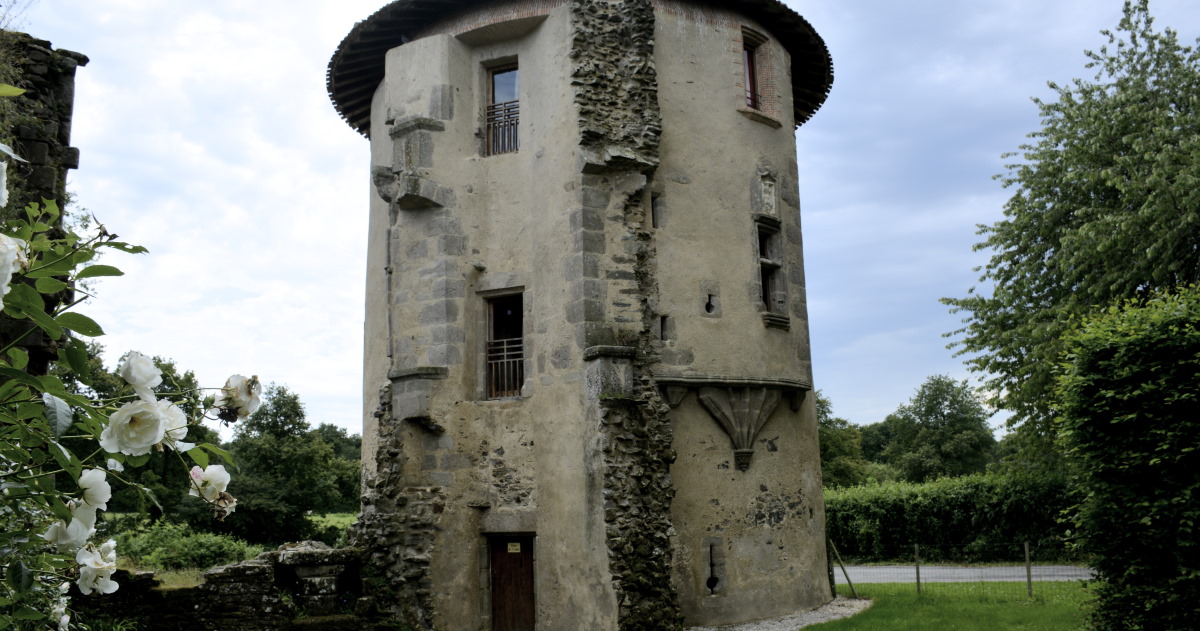
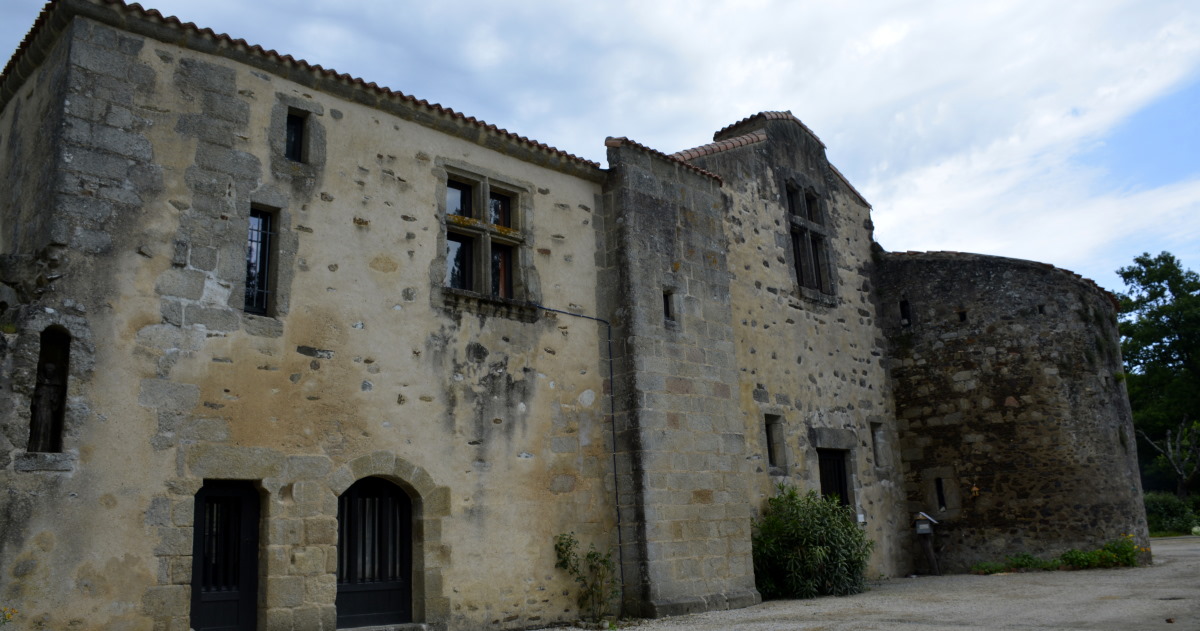
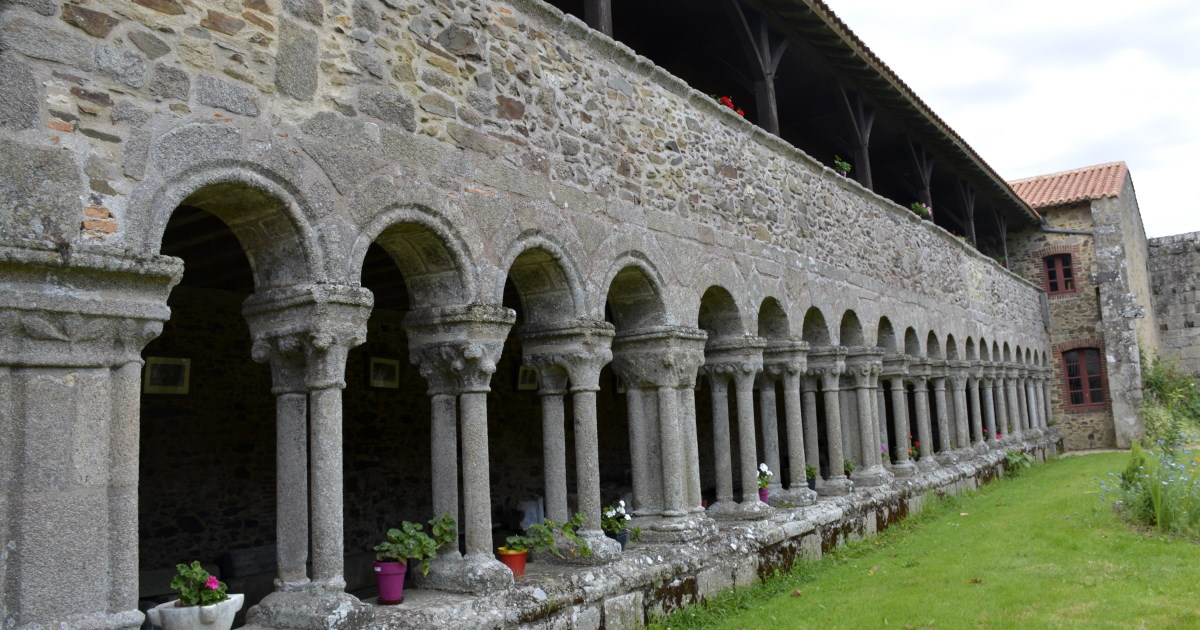
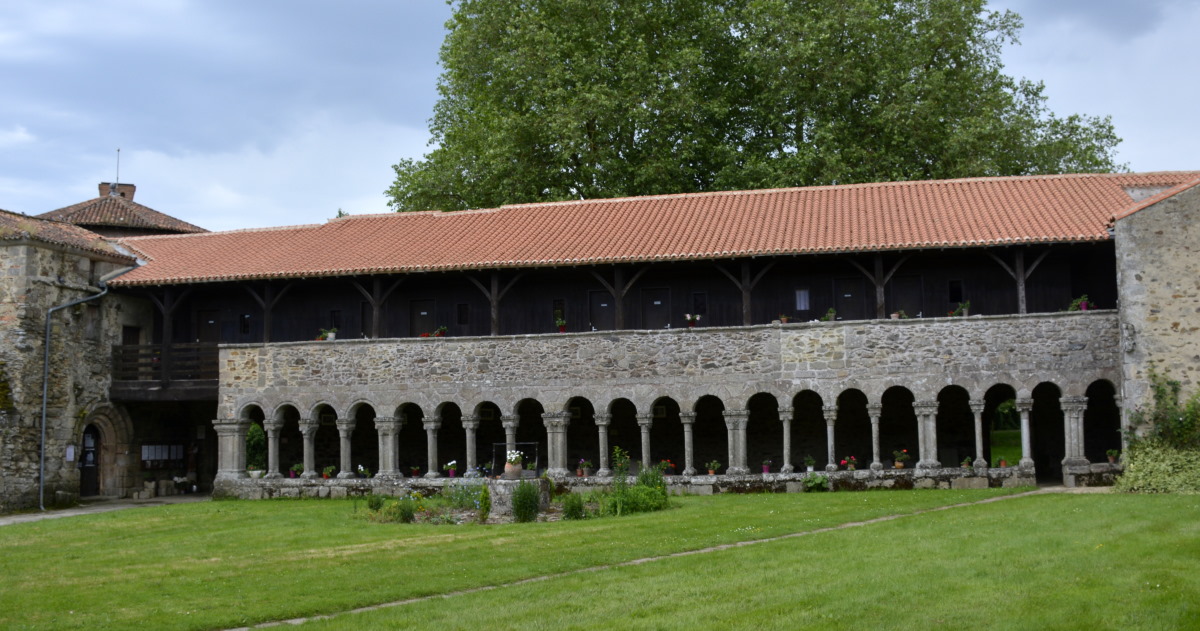
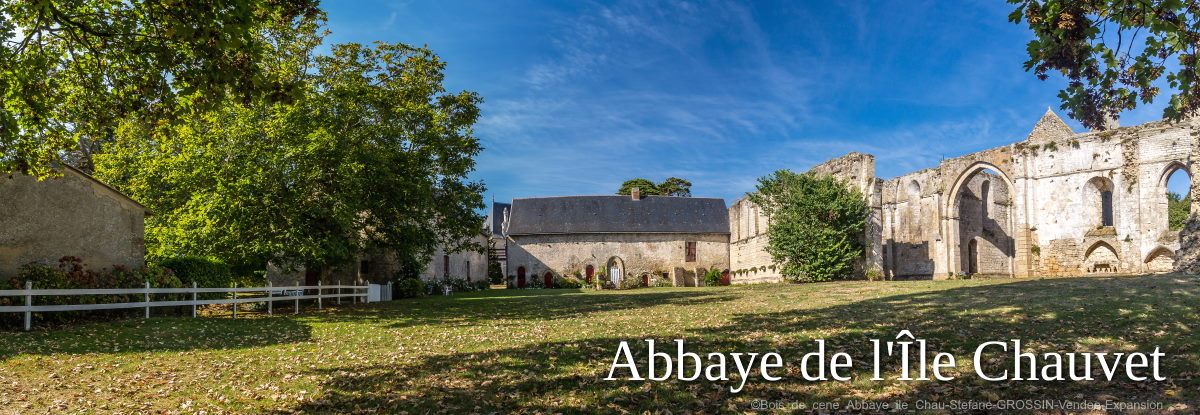
Abbaye de l'Île-Chauvet - XIIth Century
Centuries ago this abbey was situated on the small island of Chauvet in the Bay of Bourgneuf. It was founded around 1130 by Benedictines from Absie-en-Gastine with the intention of building dykes and marshes for harvesting salt.
The monks were active and productive for centuries until the abbey was reduced to a state of decay during the Hundred Years' War. In 1588, the abbey was also set on fire.
In 1621, it was restored and inhabited by Benjamin de Rohan. In 1680, the abbey became a monastery again but was sold after the Revolution.
In its present life, the building is a museum with, for example, models of the former abbey and a model of the water network of the local marsh. You can also see the beautiful ruins of the old church. The current owner is Mr Guy de la Brosse.
Open – Guided visits and museum from July to the third weekend of September (journées patrimoine)
Tip – Make it a day-trip with a sail around the Marais Breton
Address – Abbaye de l'Ile Chauvet
85710 Bois-de-Céné
GPS coordinates – 46 ° 56 '00 "north, 1 ° 54' 33" W
Nearby sightseeing – Marais Breton, St. Gilles-Croix-de-Vie, bicycling, Noirmoutier
Images – Stefane Grossin, and
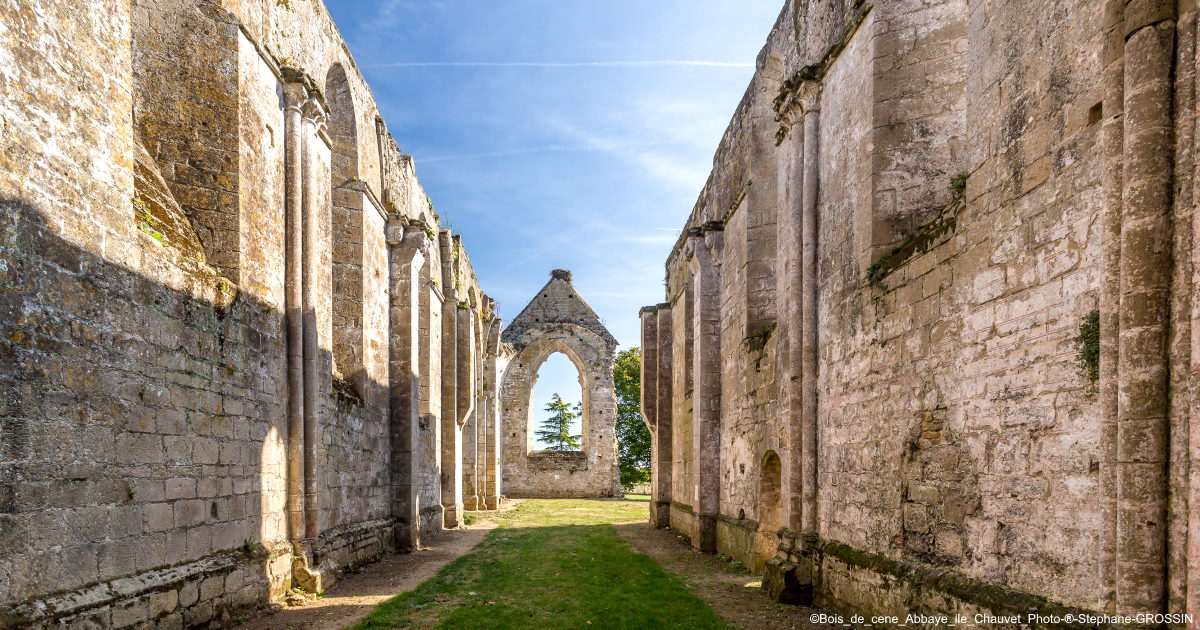
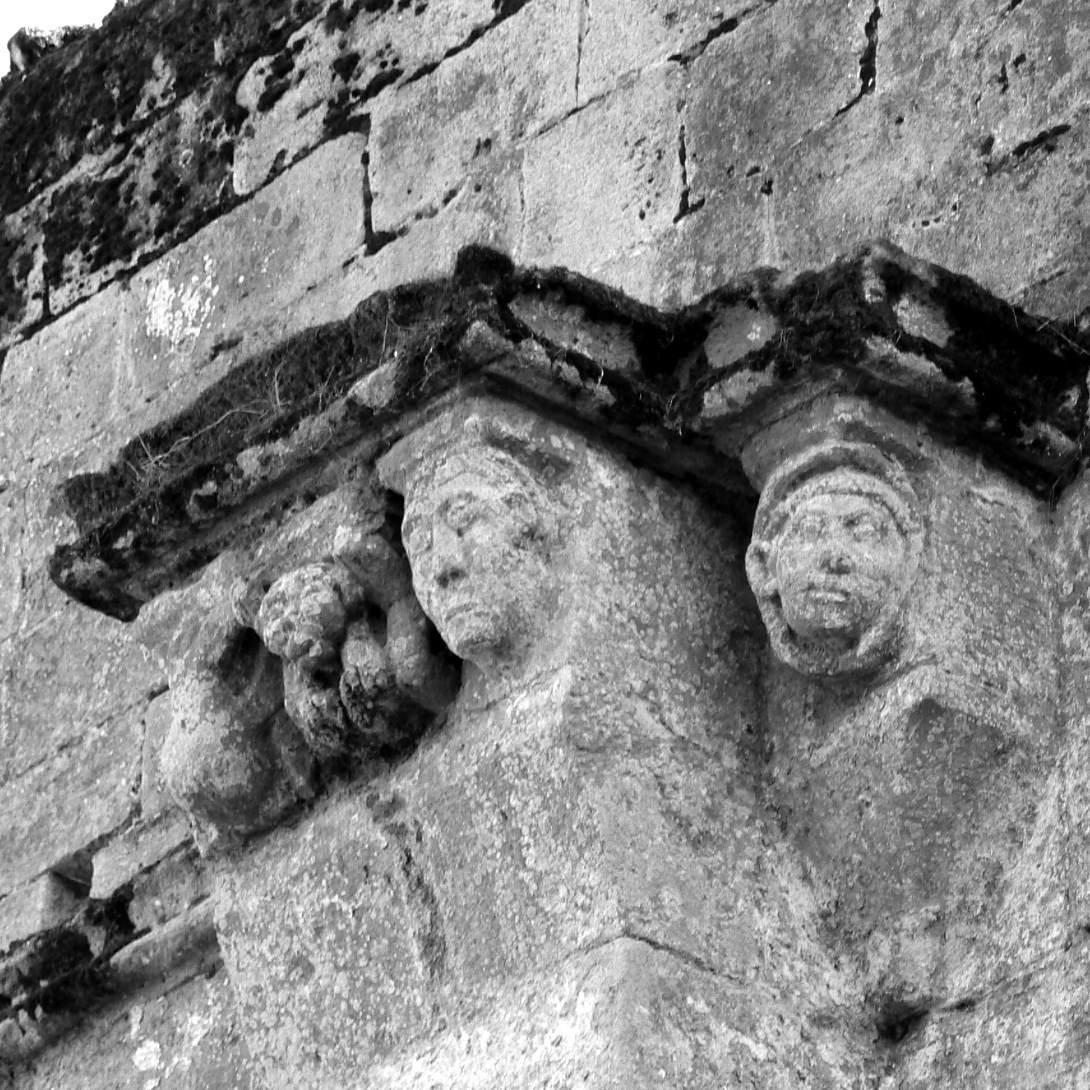
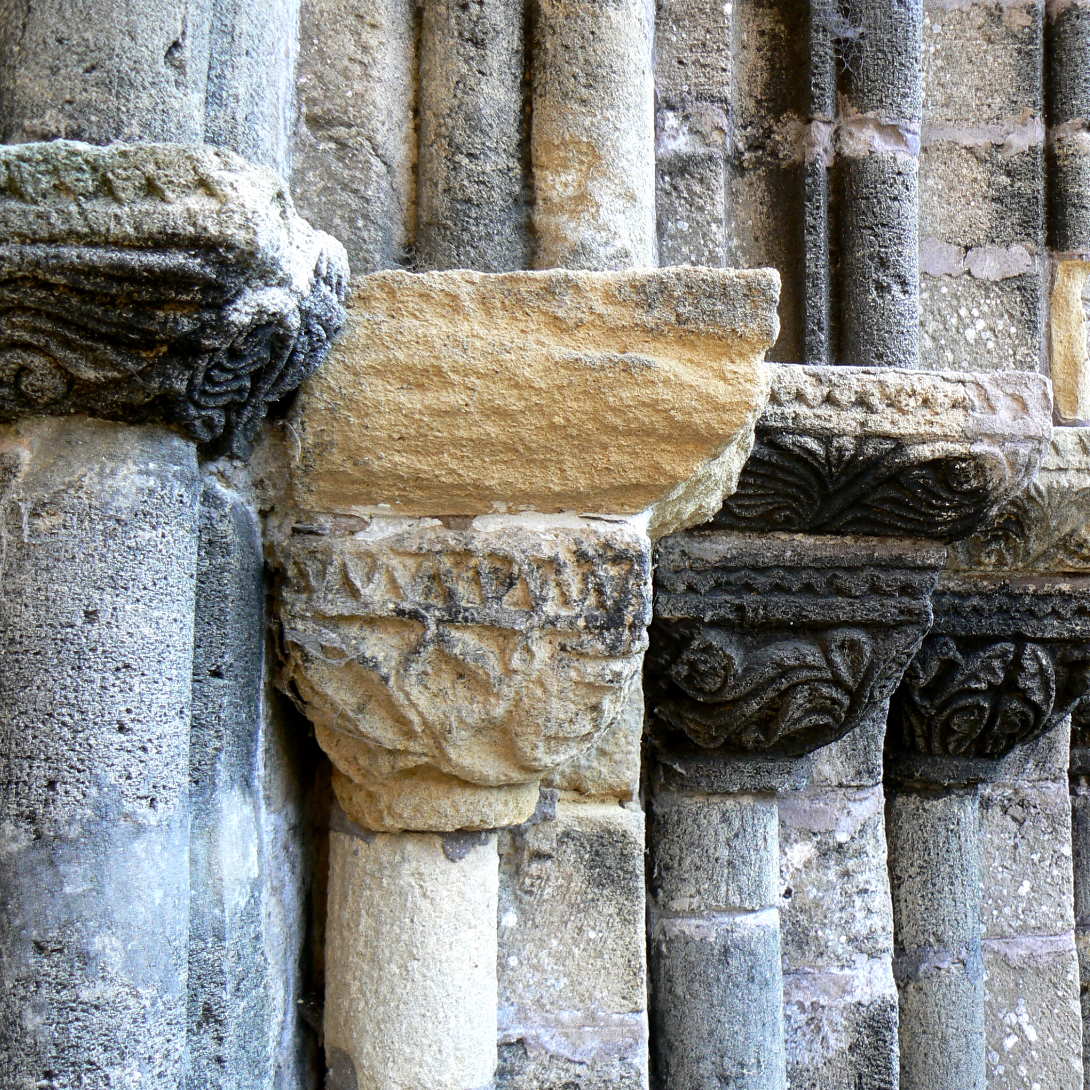

Trizay Abbey is an ancient Cistercian abbey founded in the 13th century by the monks of Pontigny Abbey, but the abbey stands on a foundation that probably dates from the 12th century. In documents there is evidence that the abbey church was consecrated in August 1145.
According to Cistercian custom, the abbey was built in a small valley where the monks made their living by the proximity of water. The river Le Petit Lay which flows through the Vendée, flows nearby and from this the name of the abbey was derived: Sancta Maria de vado Trisagii (Sainte Marie du gué de Trizay).
Around 1156, a daughter abbey on the Ile de Ré was founded named the abbey of Notre-Dame-des-Châteliers, the ruins of which can be visited today.
A large part of the Trizay abbey was destroyed during the Hundred Years War and later during the Religious Wars. The monks fled, but monastic life was resumed around 1565. From 1770, restoration of the abbey began, but unfortunately the Revolution put an end to it - until now. The new owners, the Cottencin-Debailleux family, have started restoring this beautiful historical monument.
Open – Journées Patrimoine in 3rd weekend september. From April 2021 1st Saturday of the month (for a small fee) you can get a tour with explanation of the renovations
Tip – St. Hermine is nearby. For a great meal or a cupppa, stop by Le Pub des Halles at Place Bujeaud, 85210 Sainte-Hermine
Address – Trizay, 85480 Bournezeau
GPS coordinates – 46° 35′ 20″ N, 1° 06′ 50″ W
Nearby sightseeing – St. Hermine
Images – by inthevendee.com
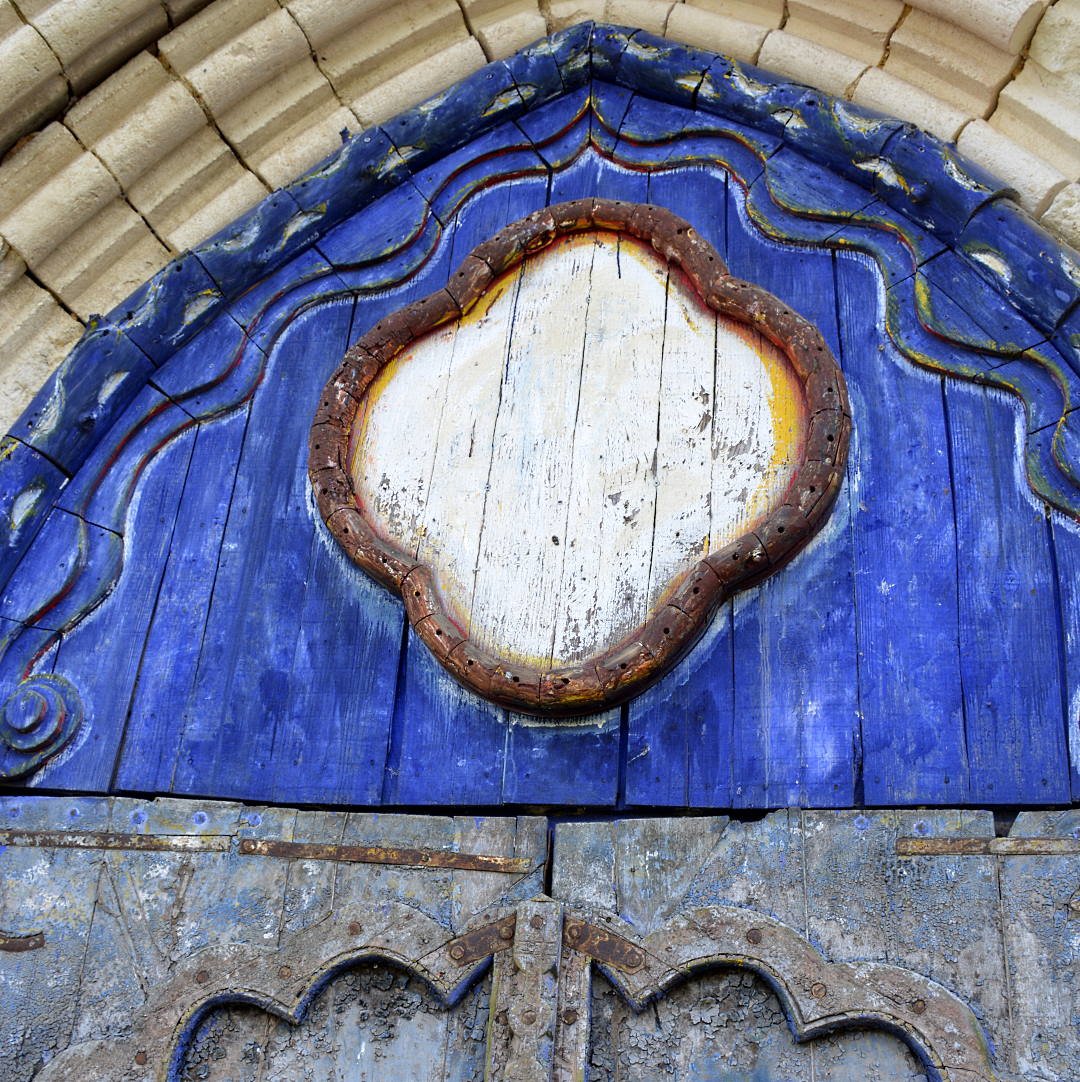
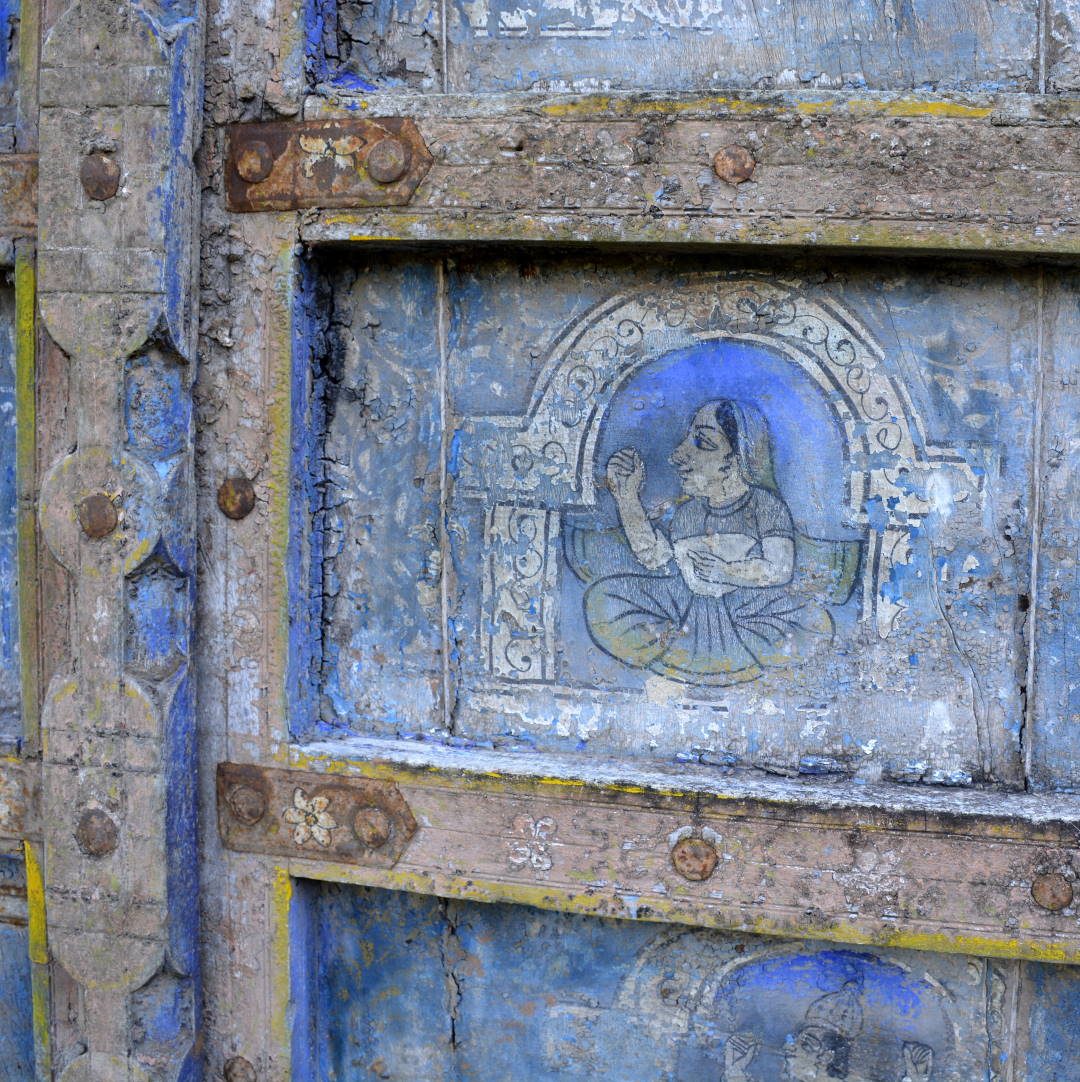
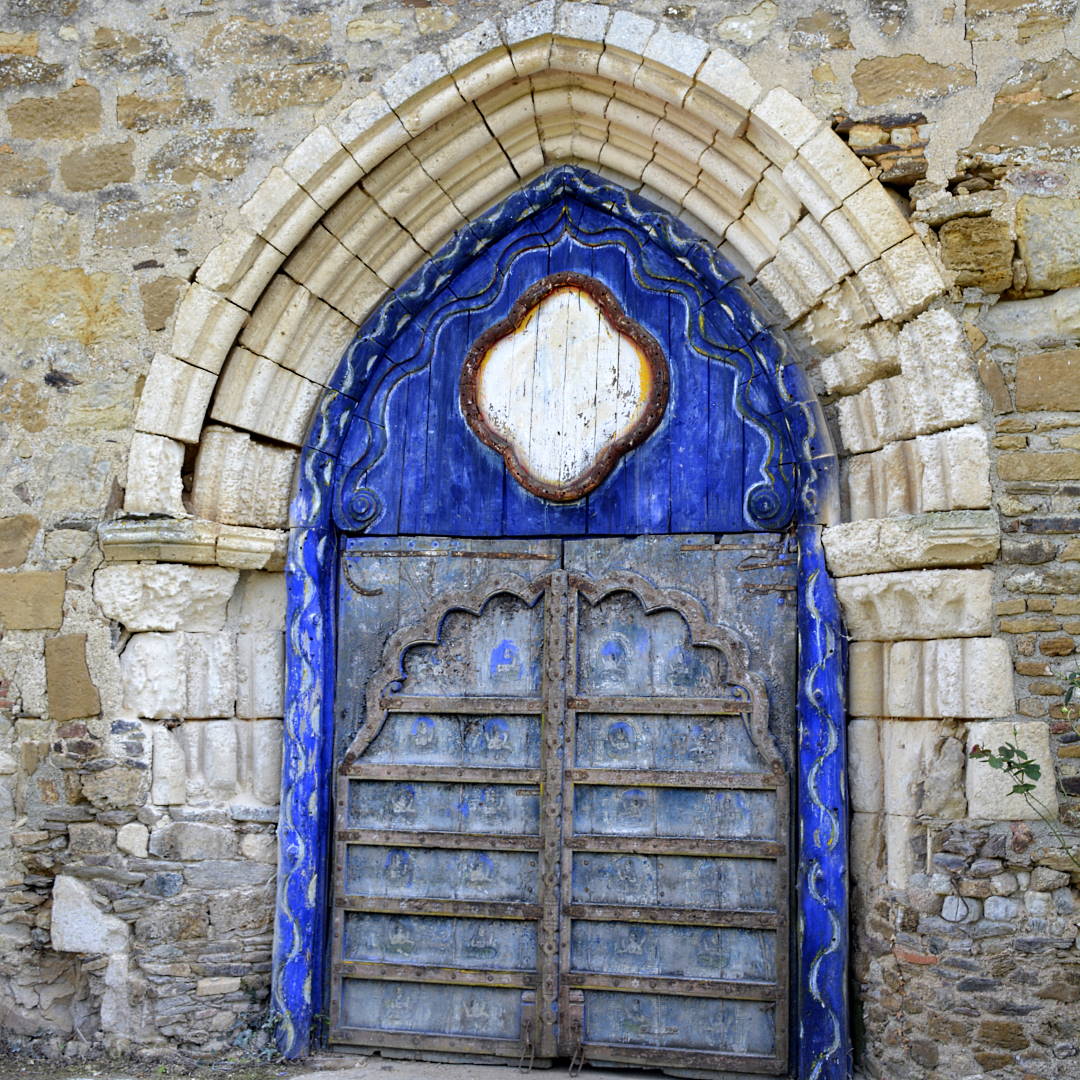
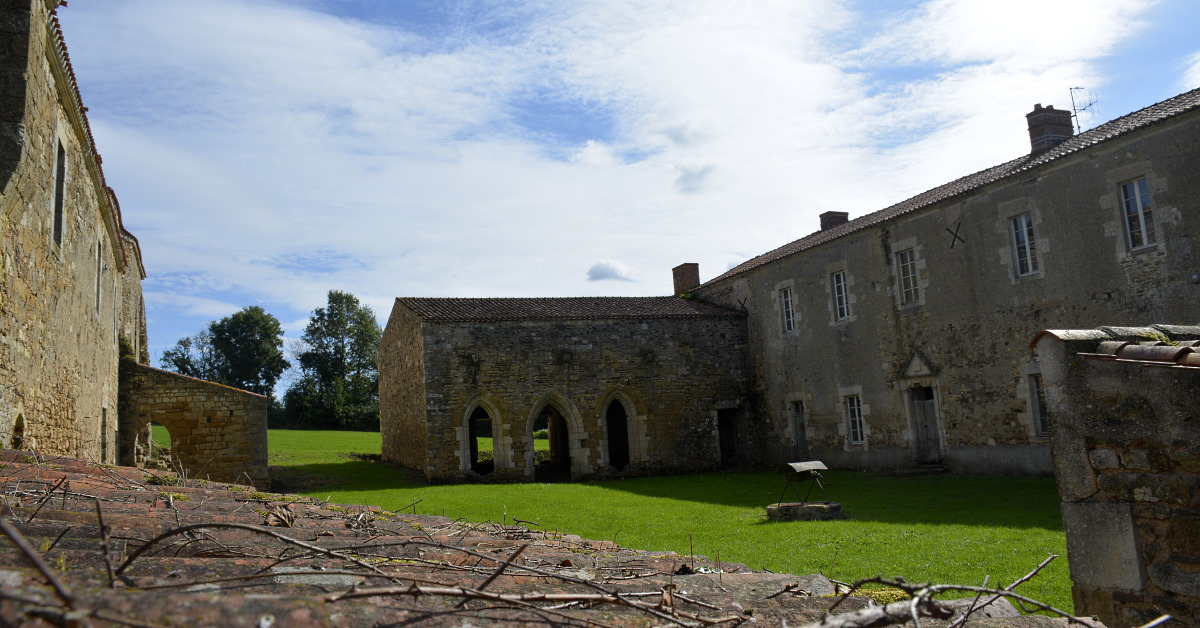
Create an itinerary in the Vendée
This beautiful area in France, the Vendée, boasts many abbeys - there are as many as 60 in the greater region in various state of ruin or restoration. Mentioned in this article are the ones worth seeing.
Each offers exceptional opportunities for (amateur) photographers, for a family picnic and for brushing up on French history. Mix and match the abbeys with nearby points of interest for a memorable holiday in the Vendée.
Share this Post
